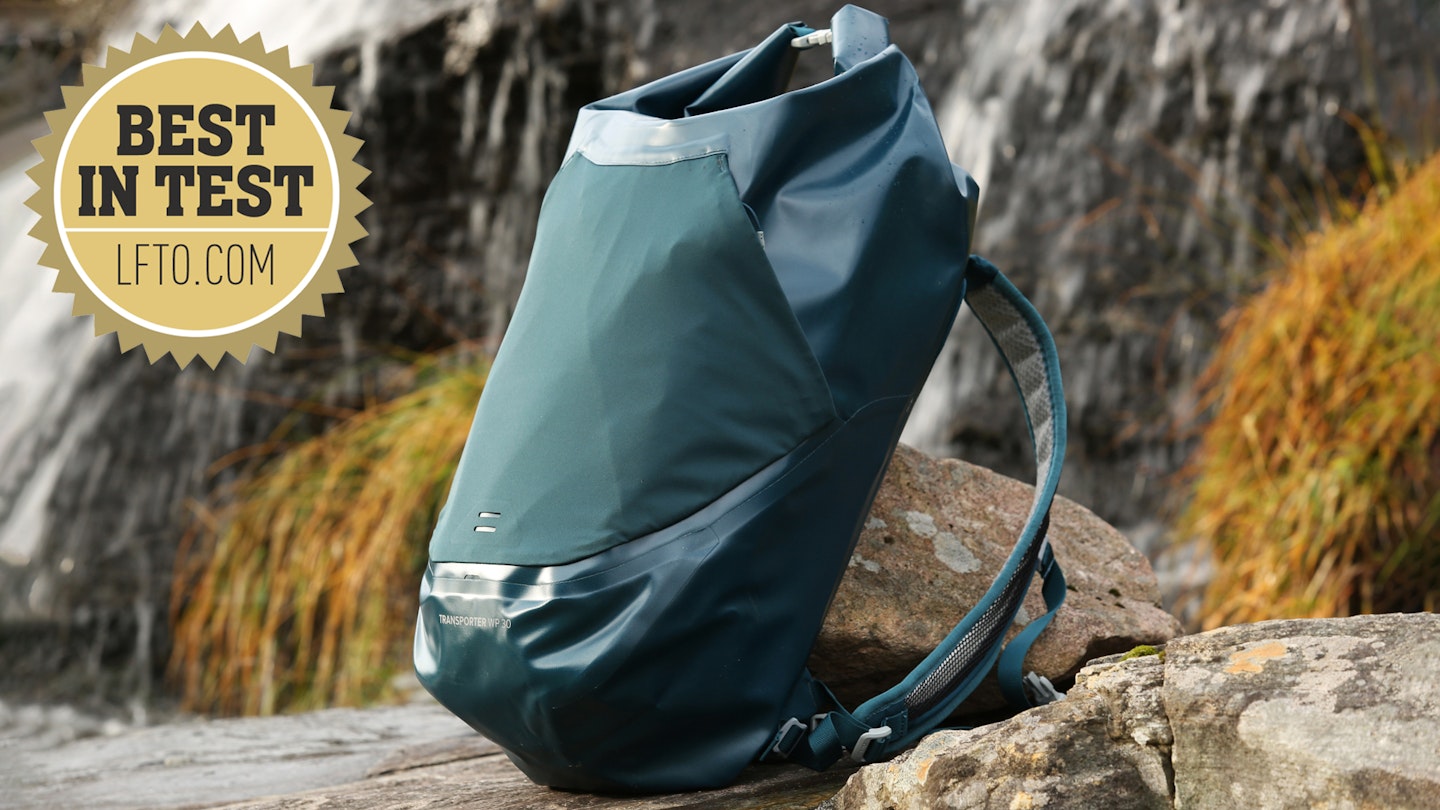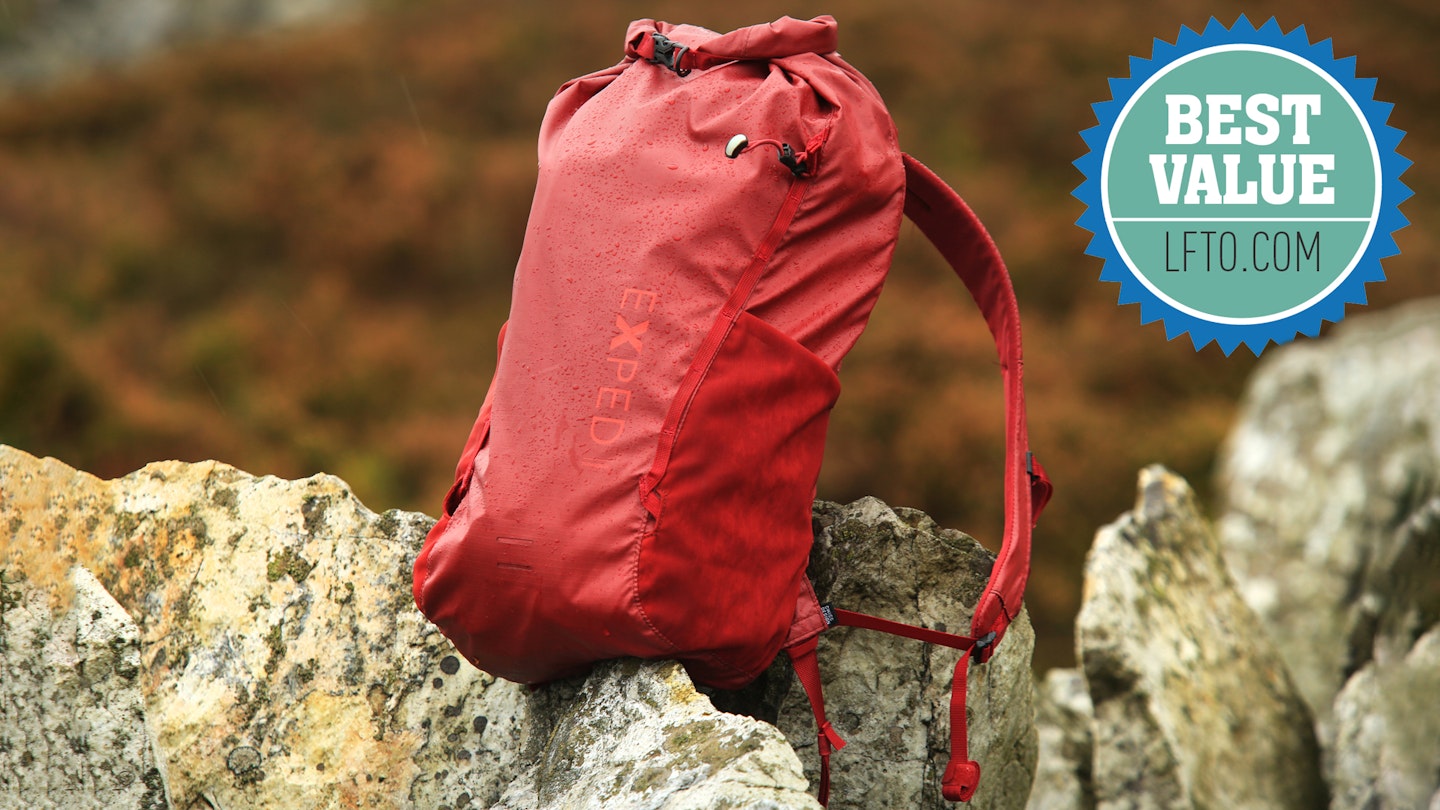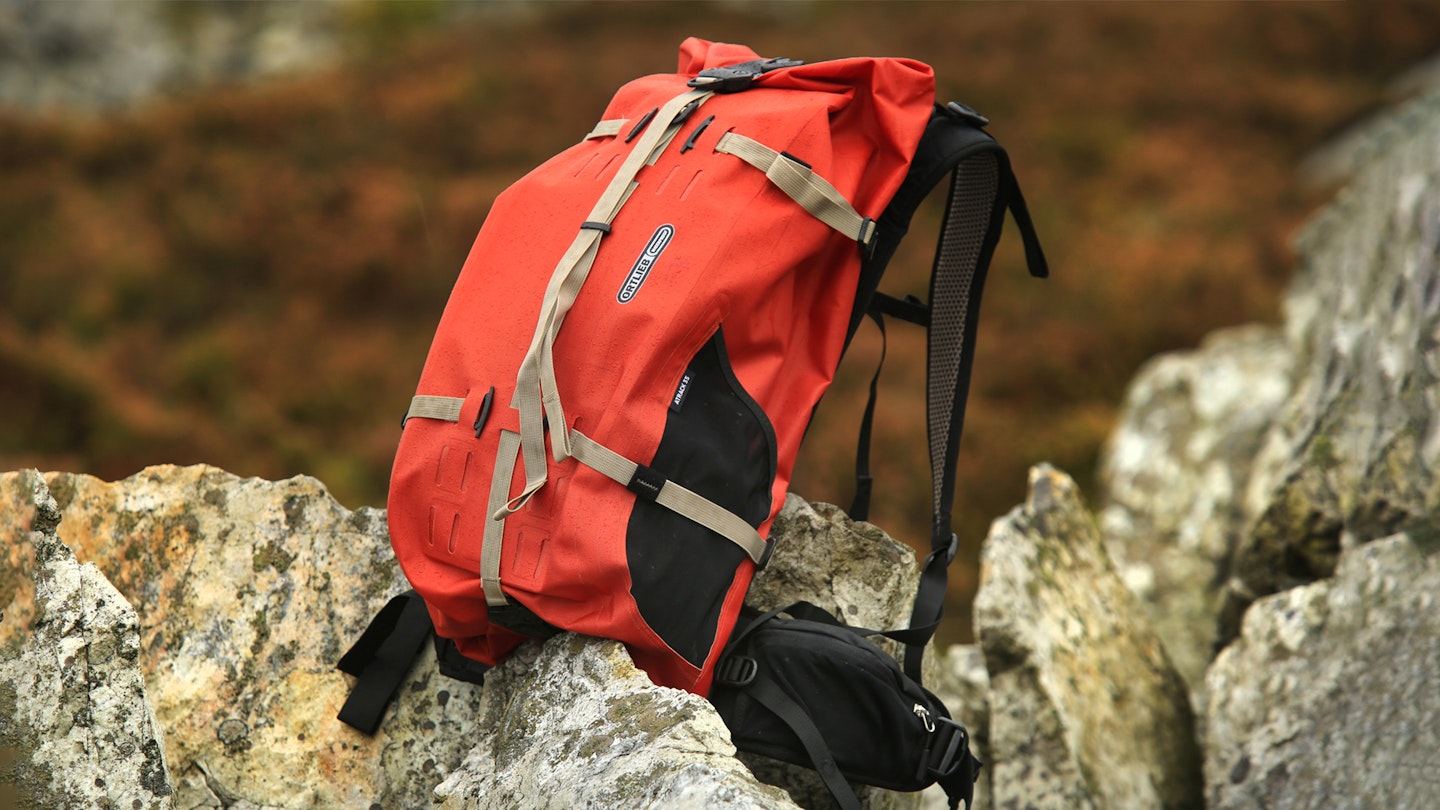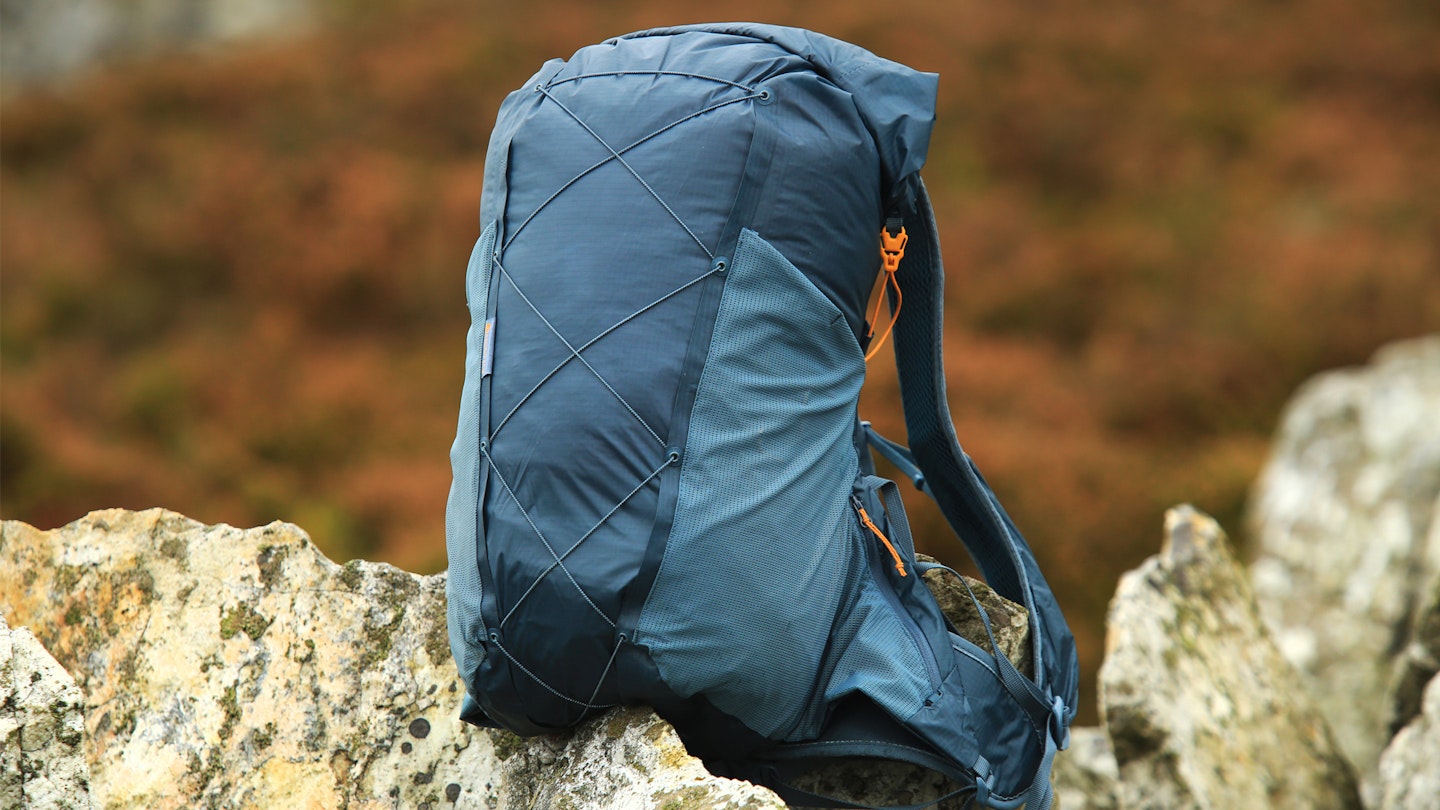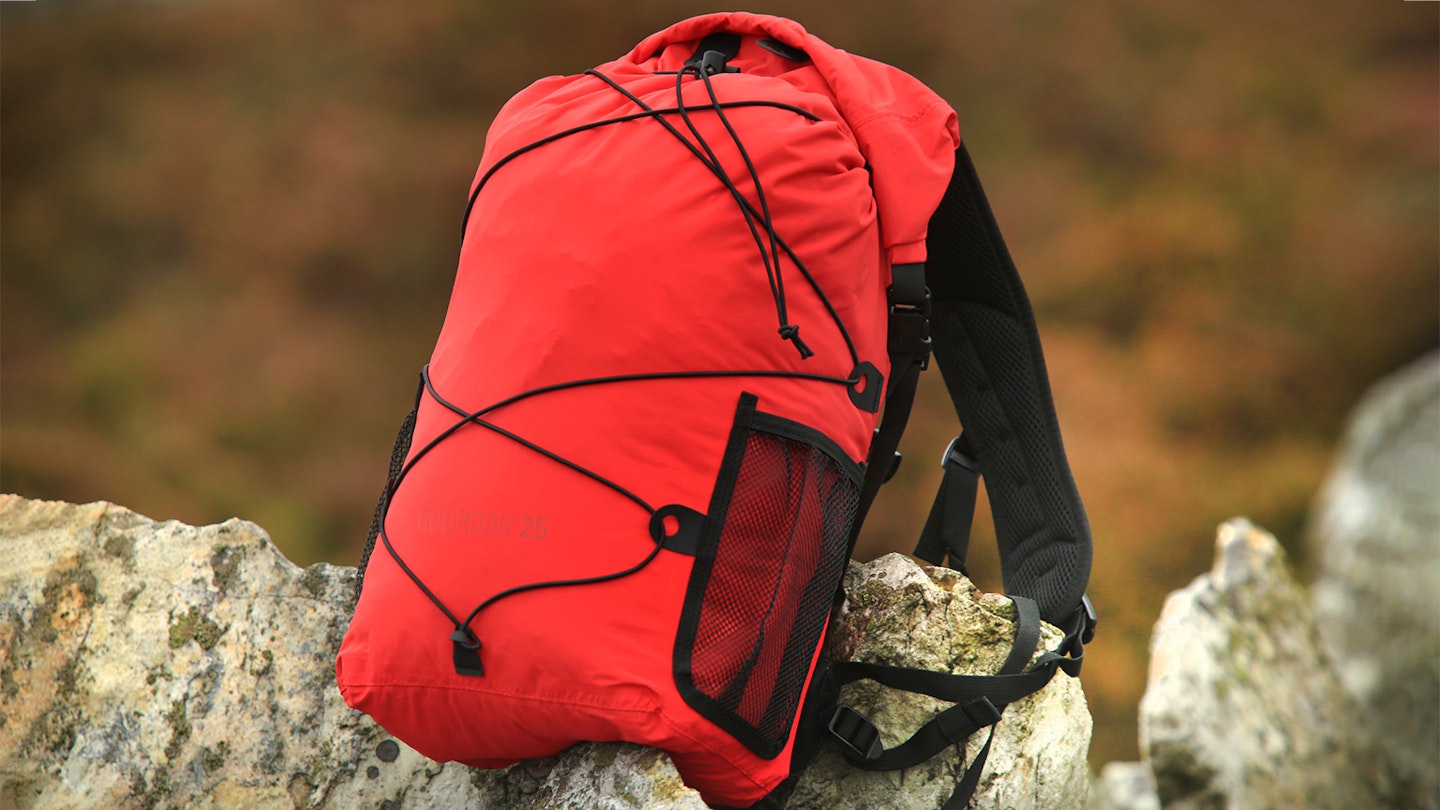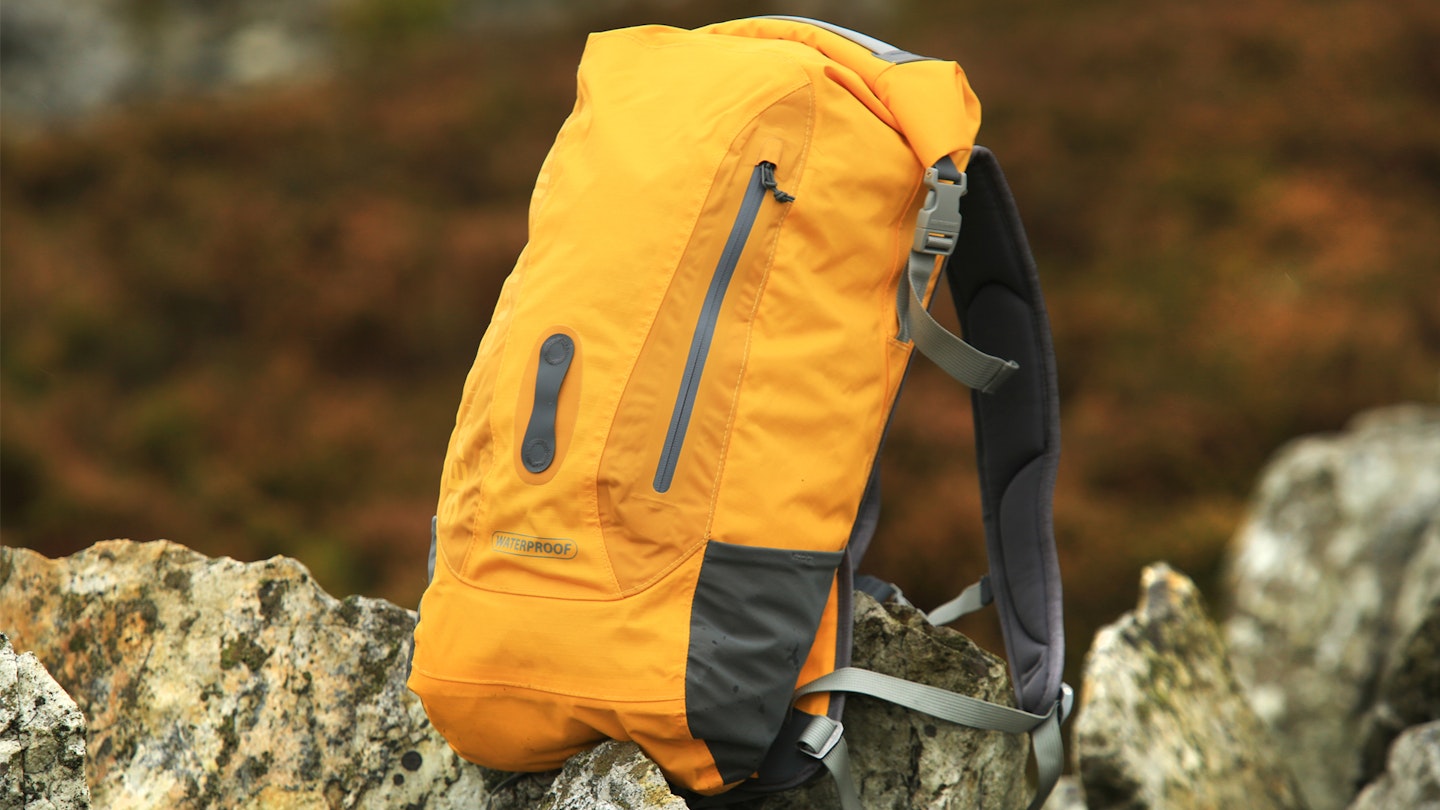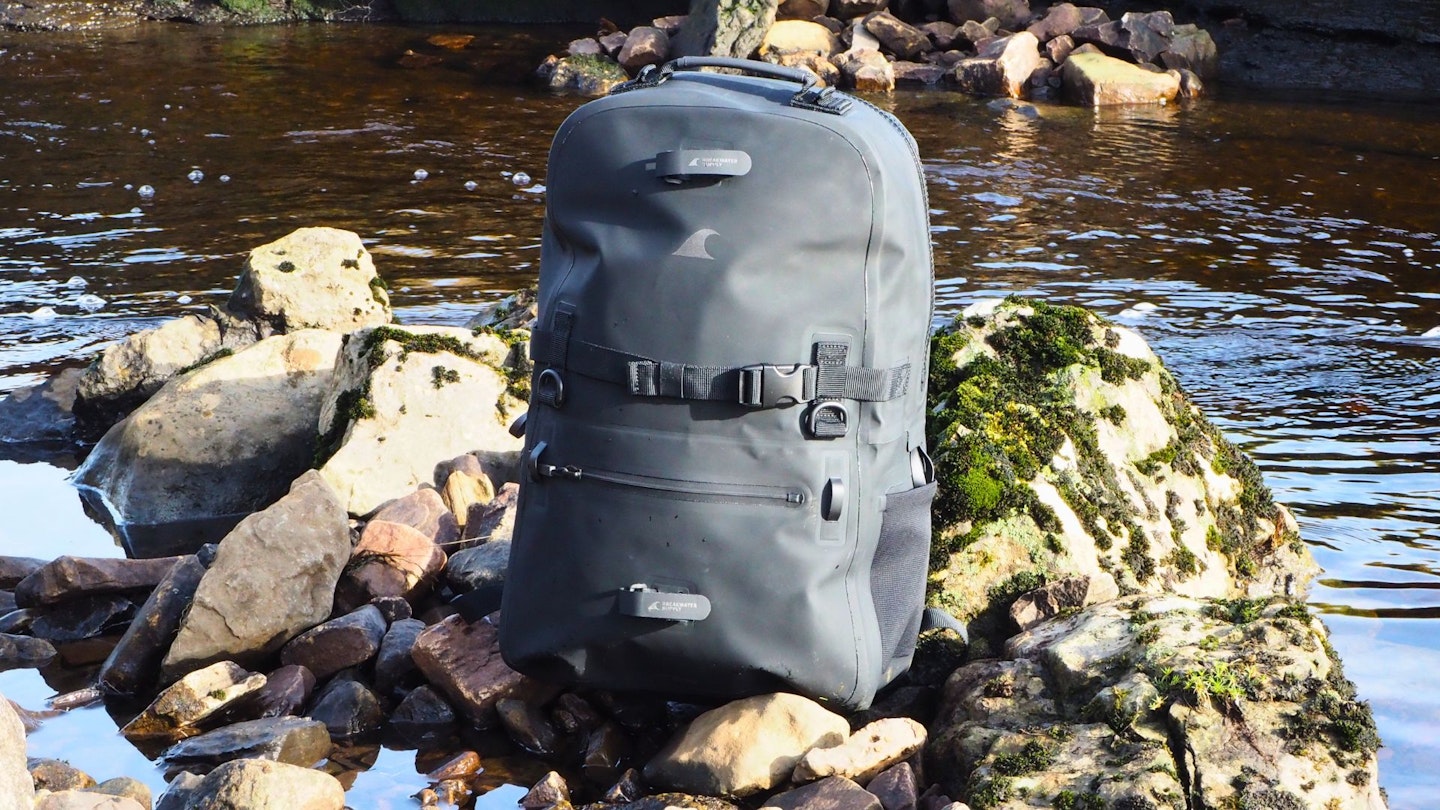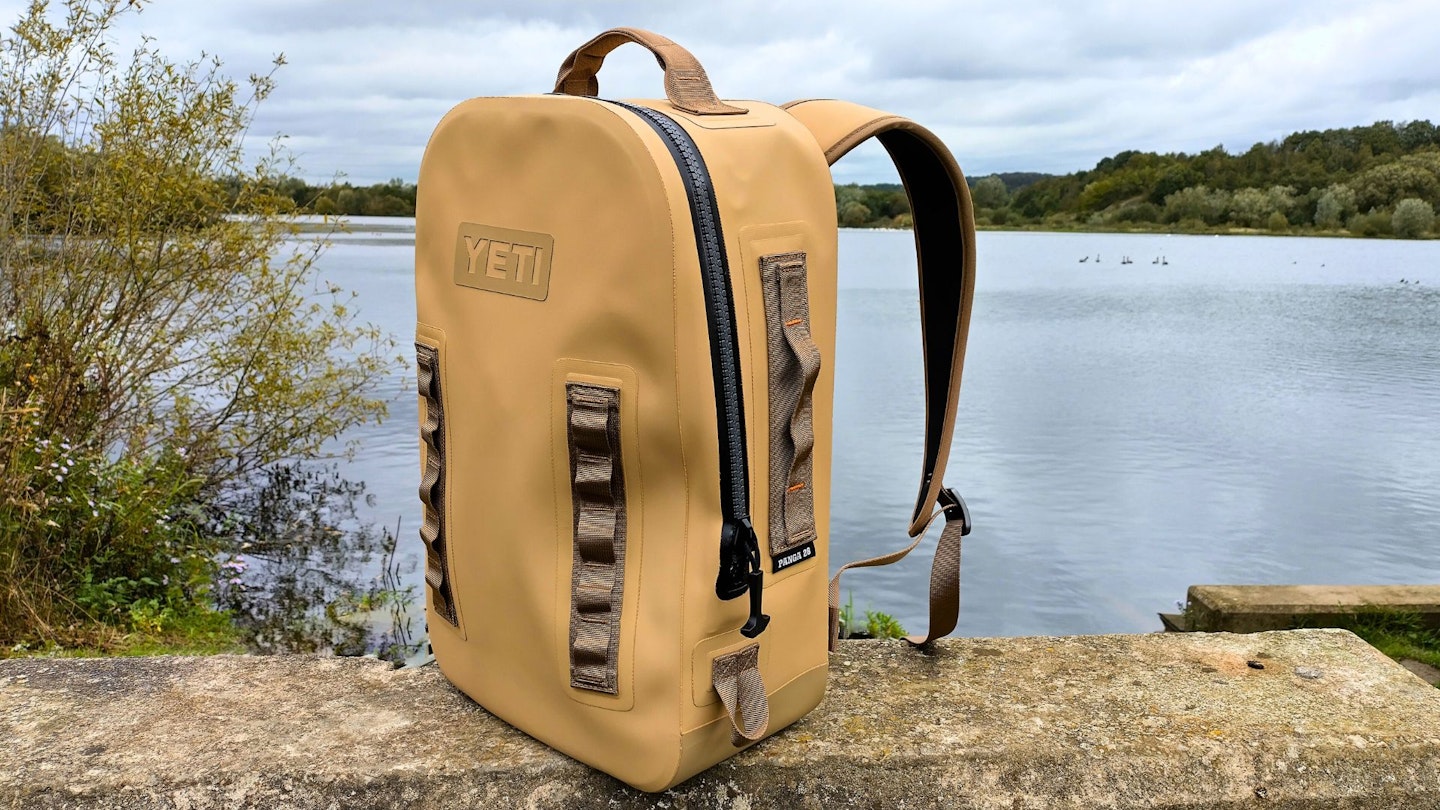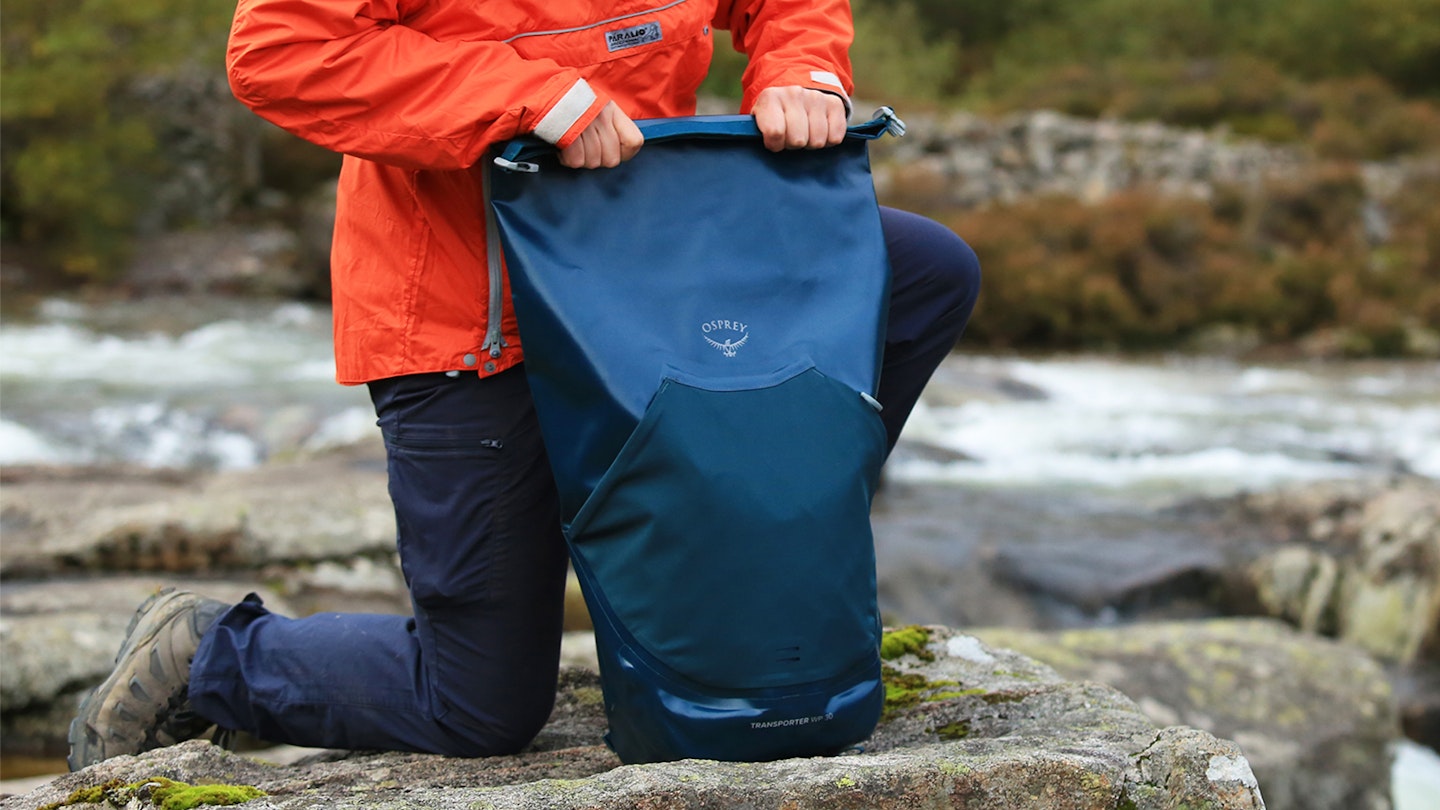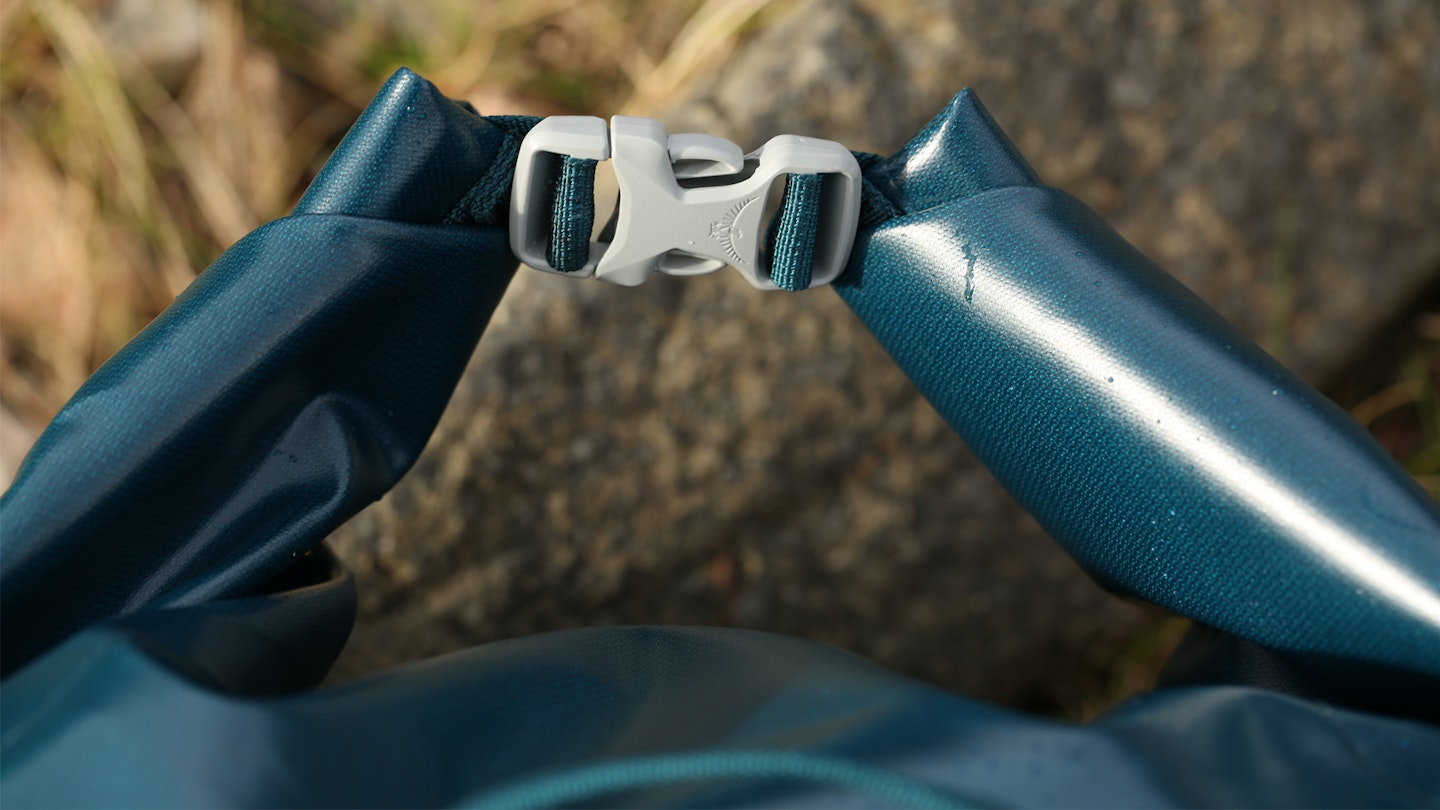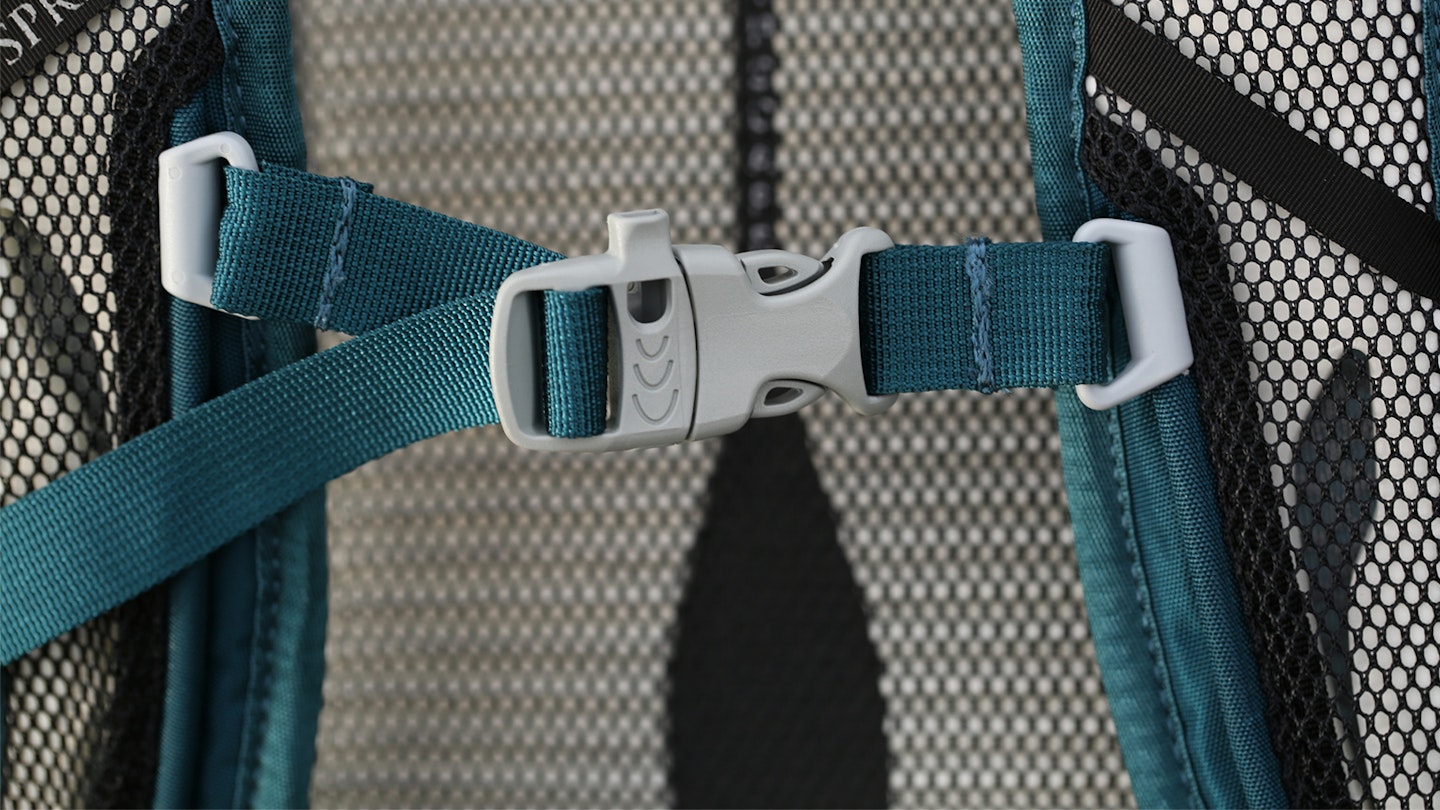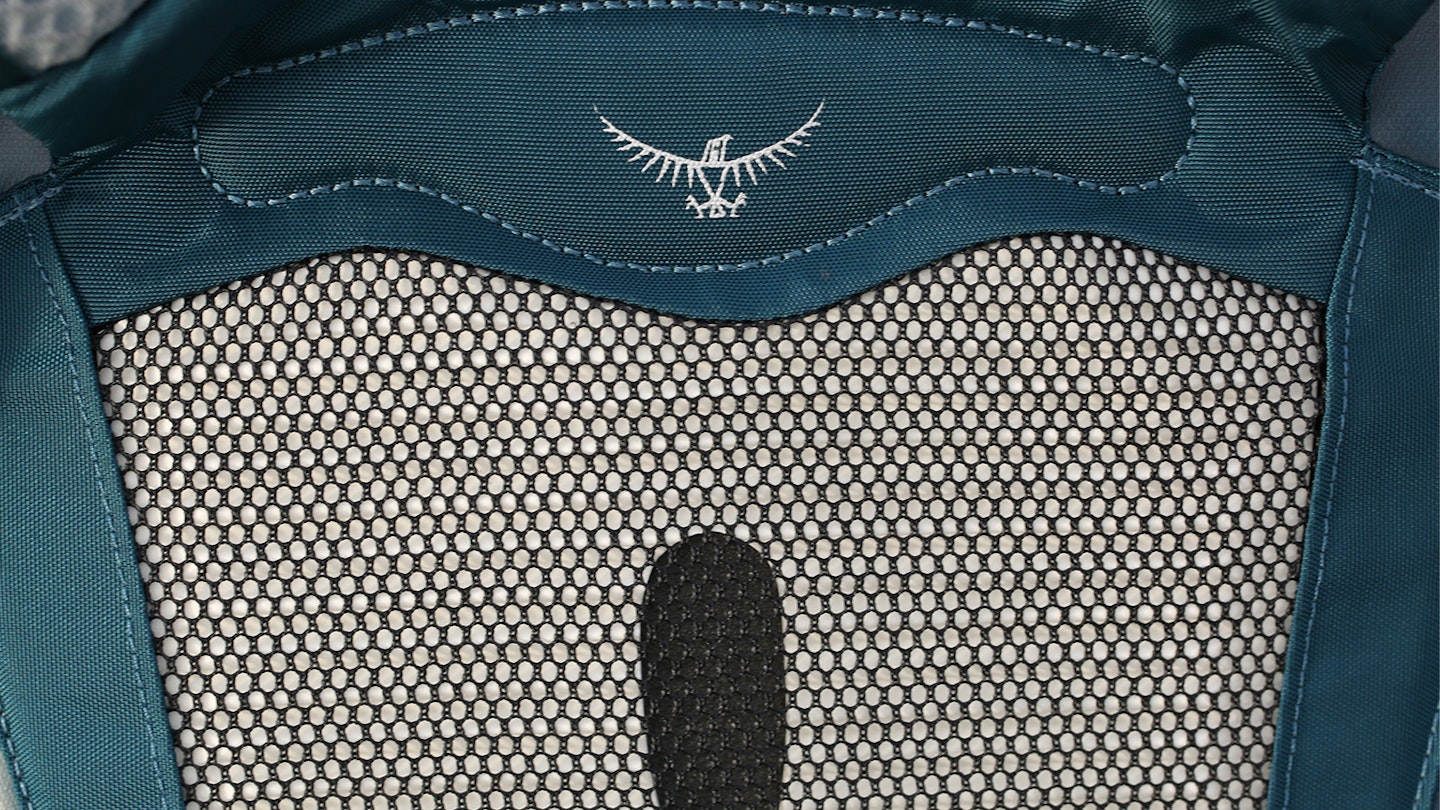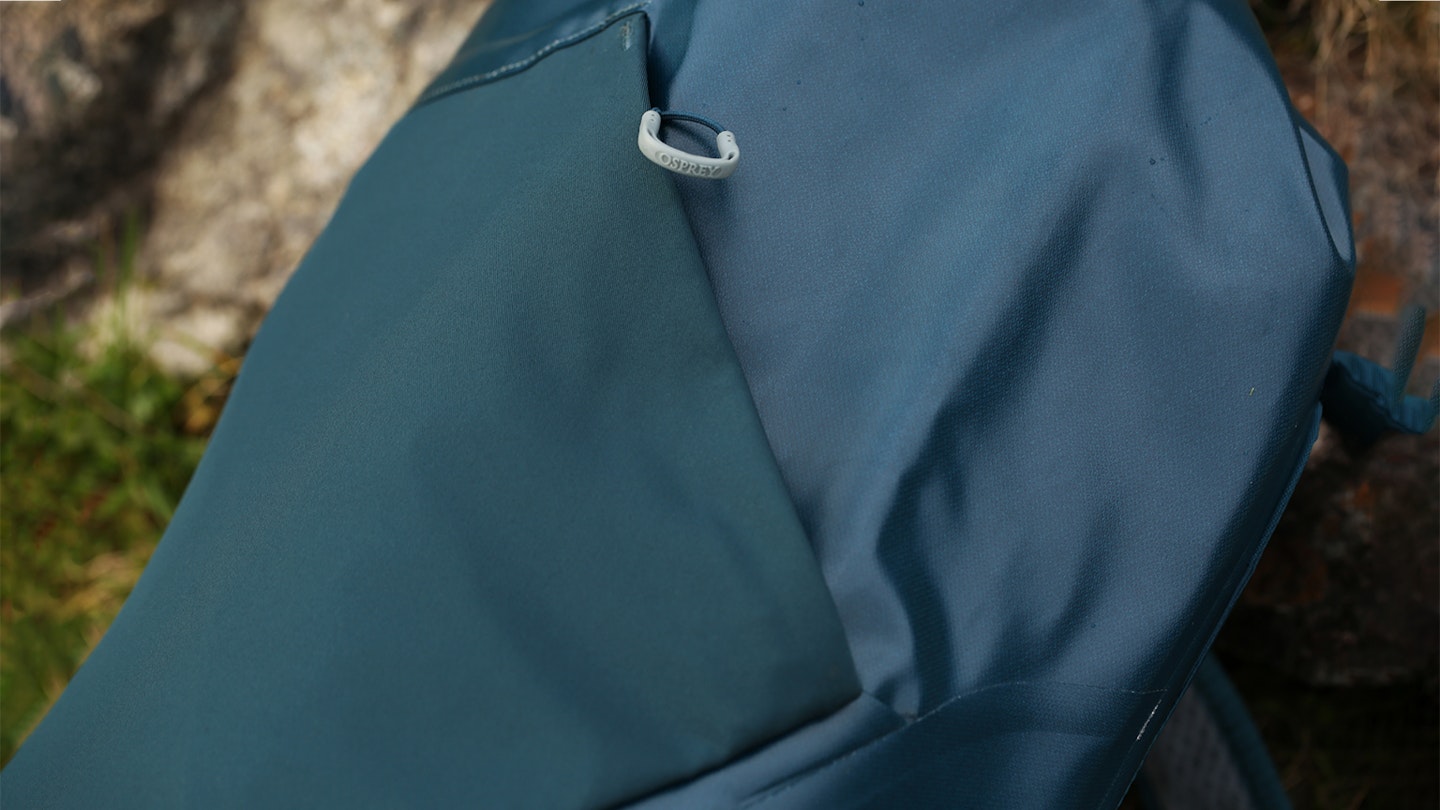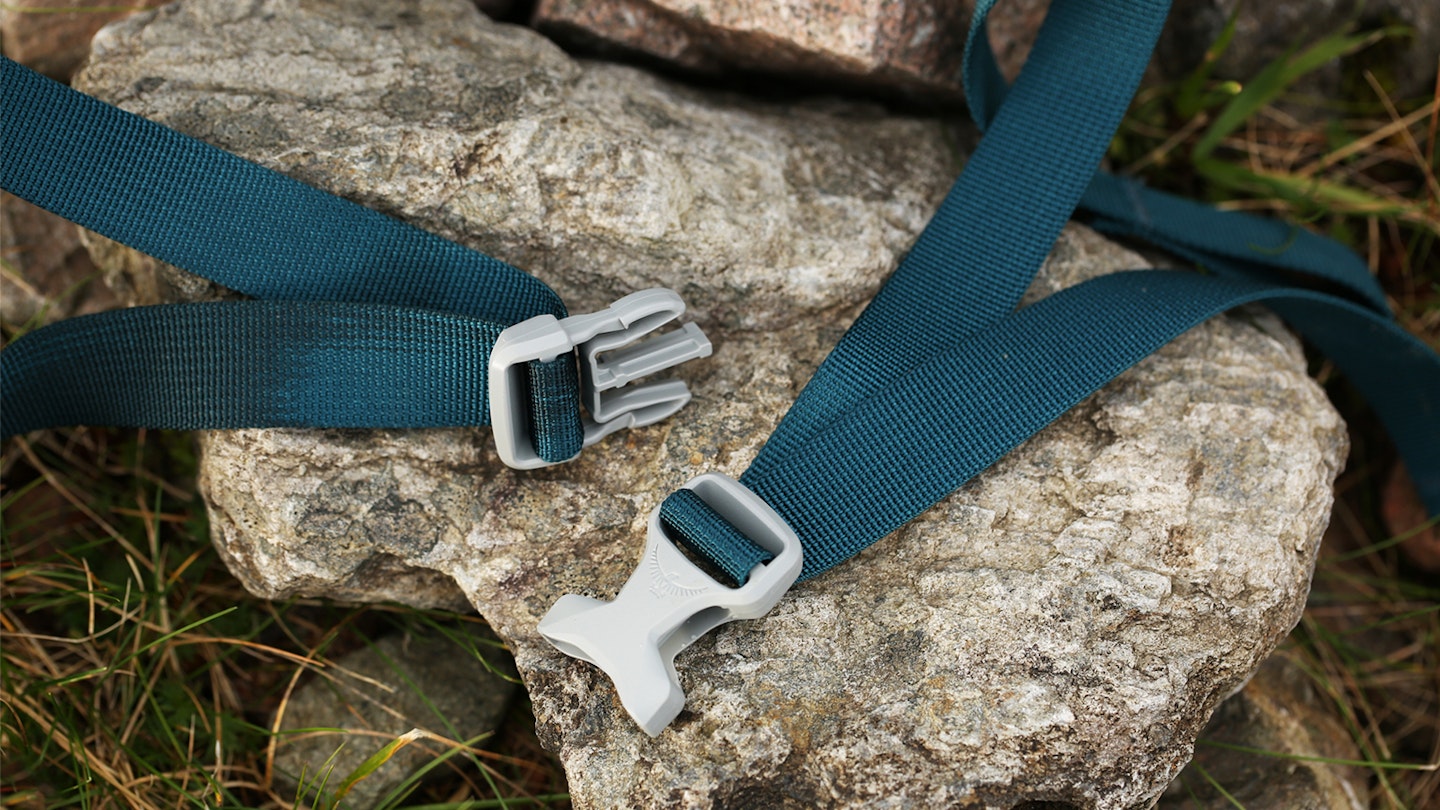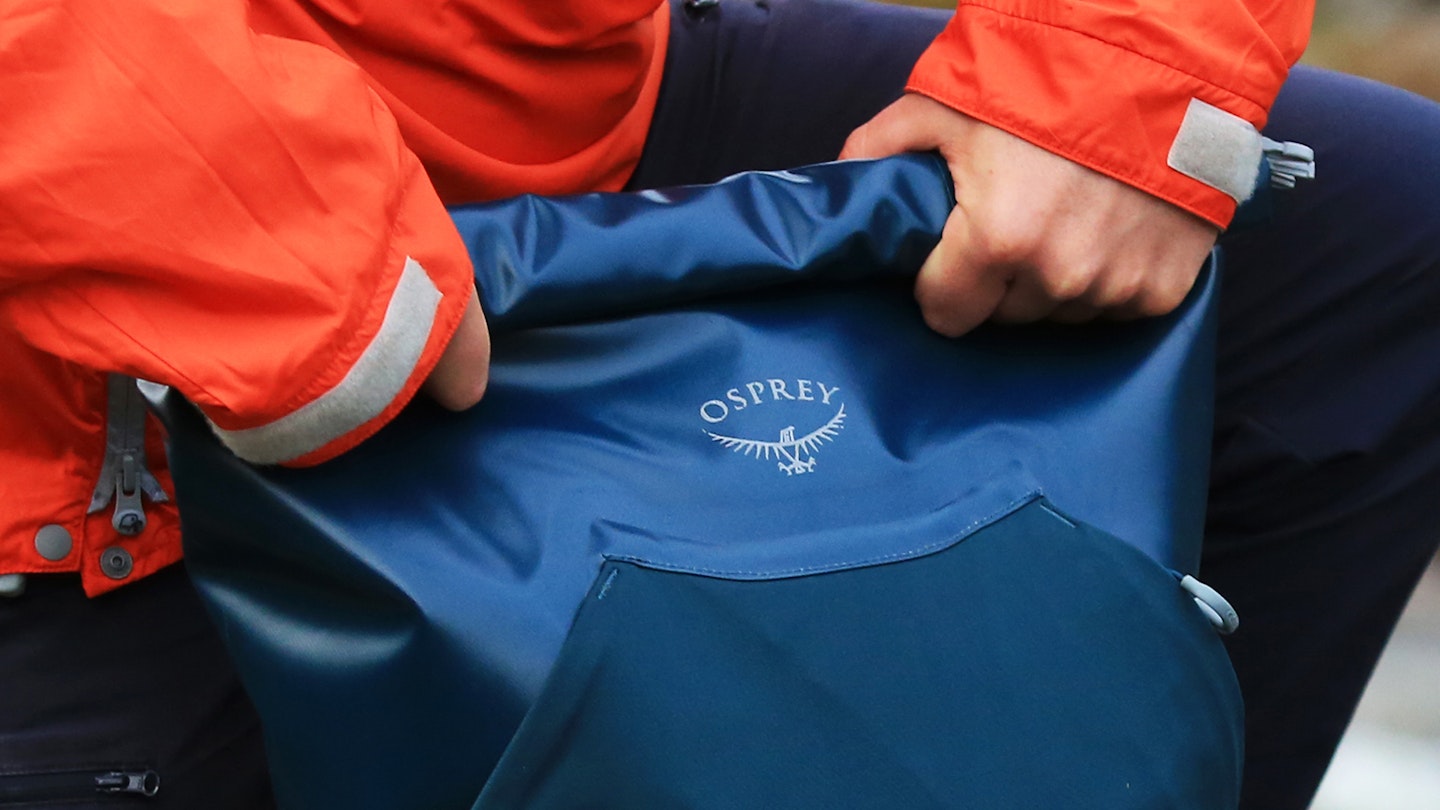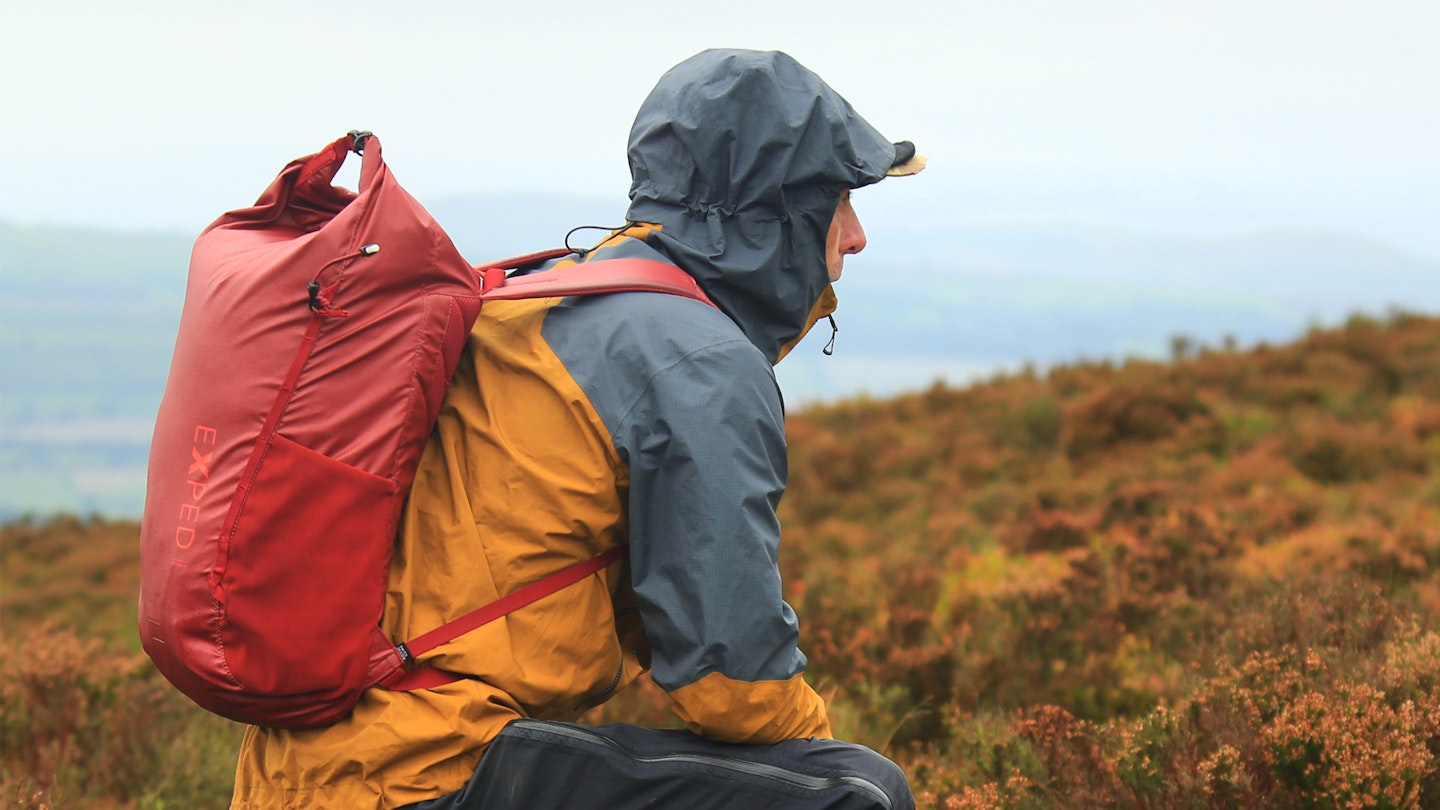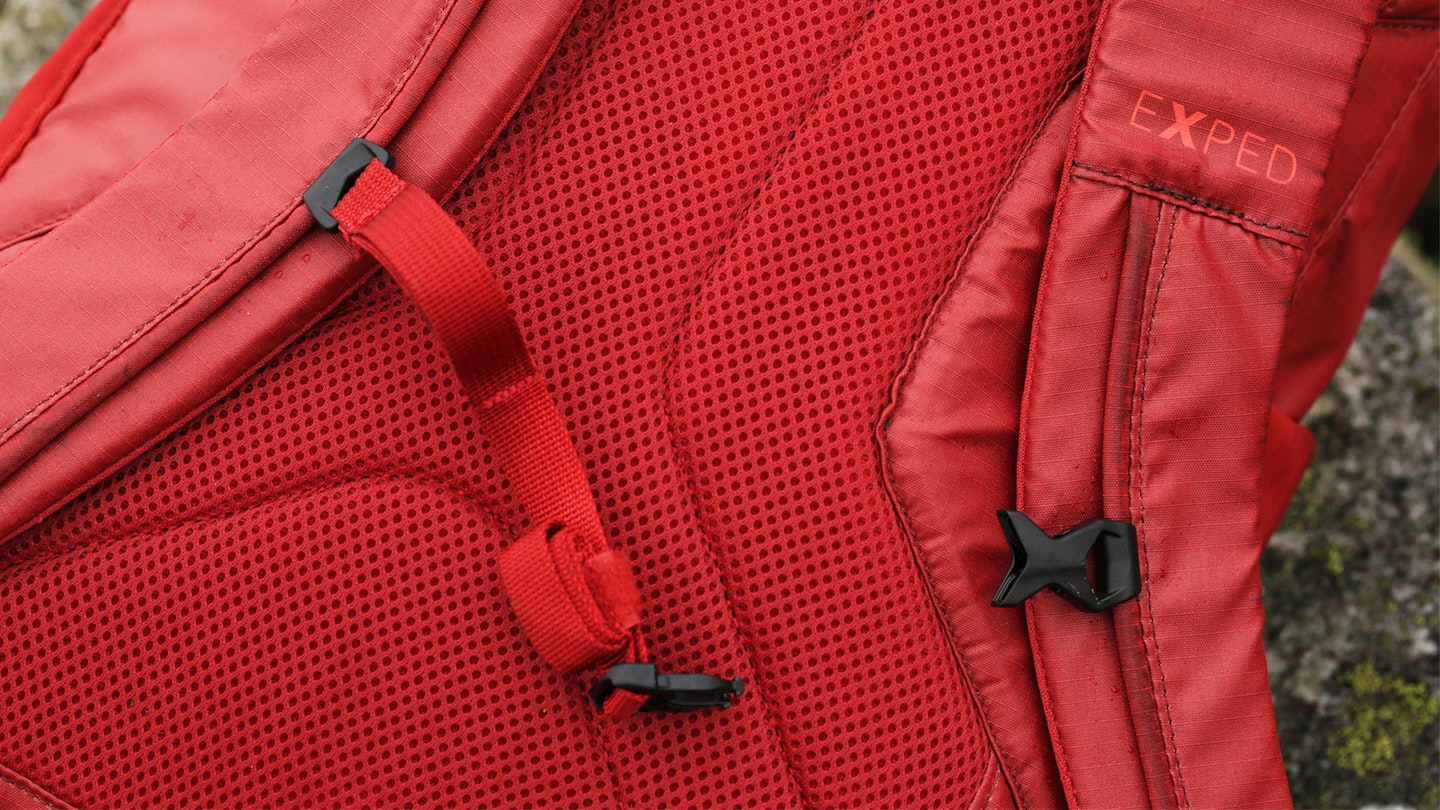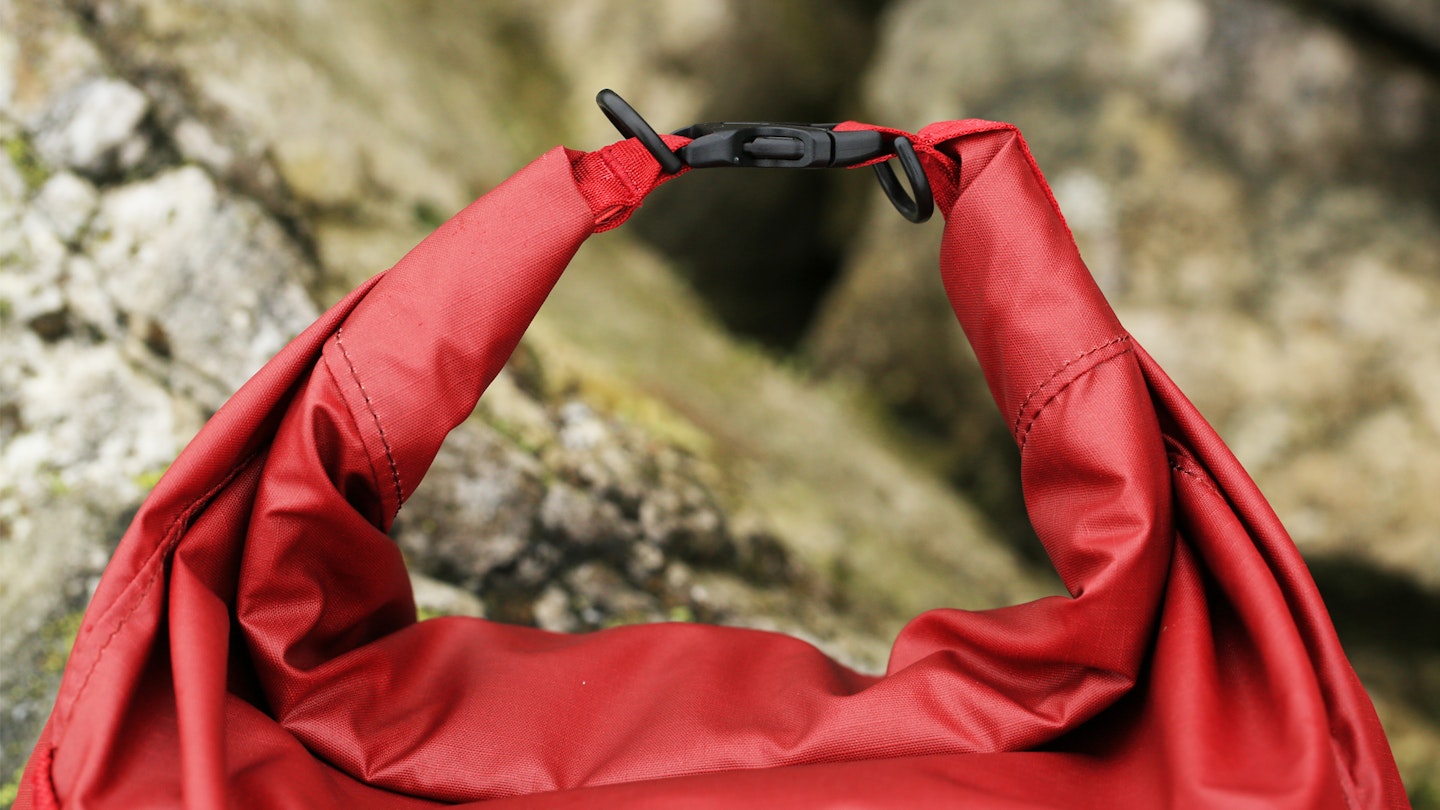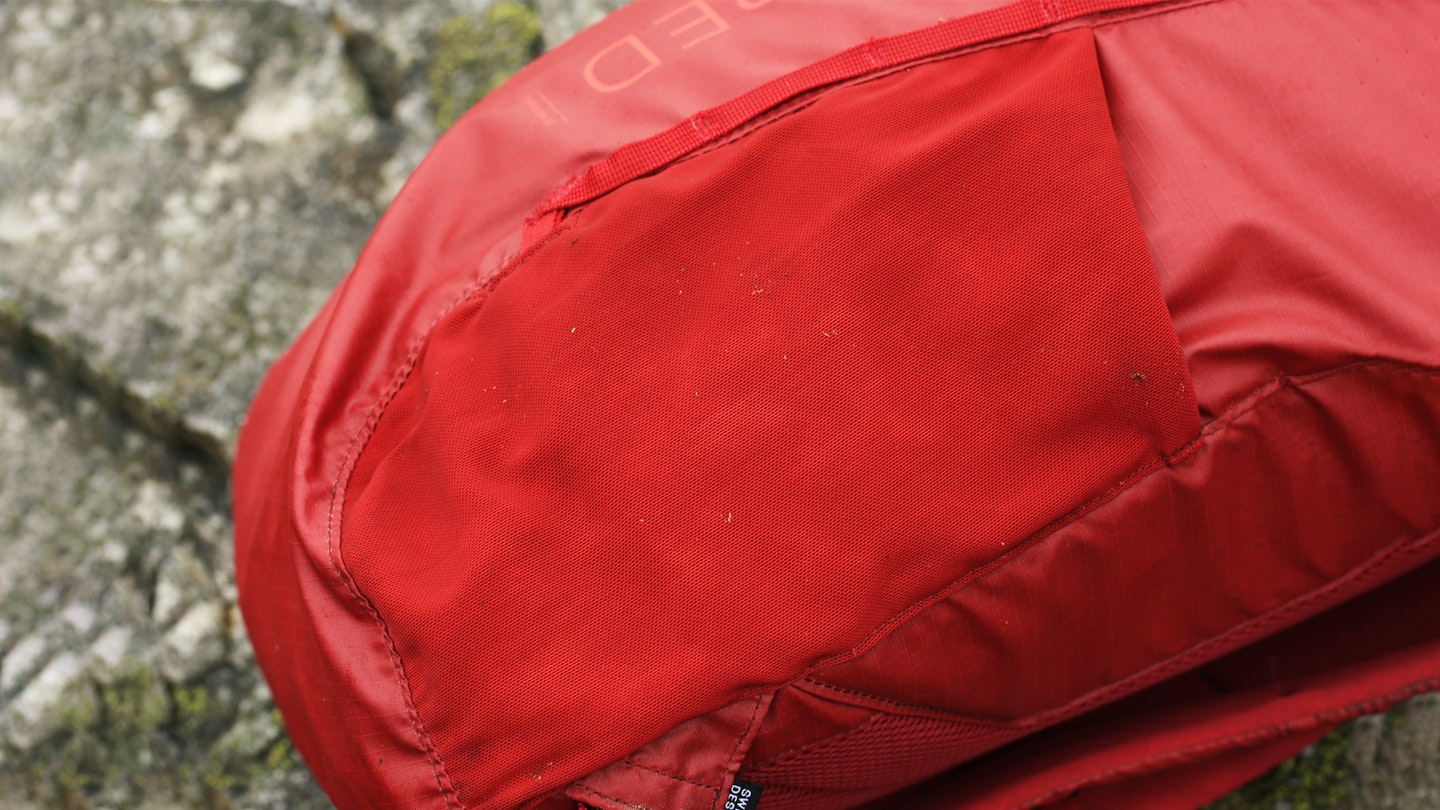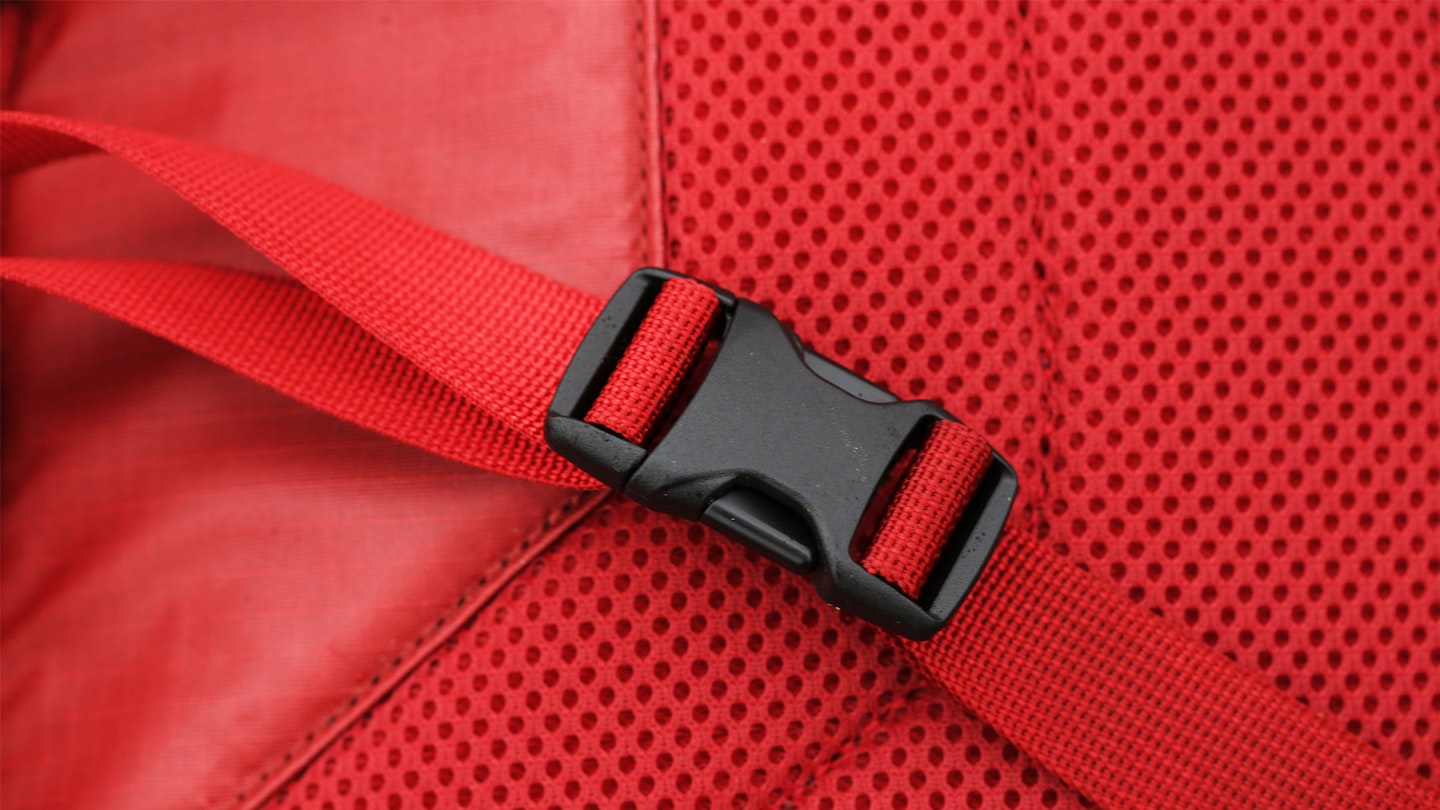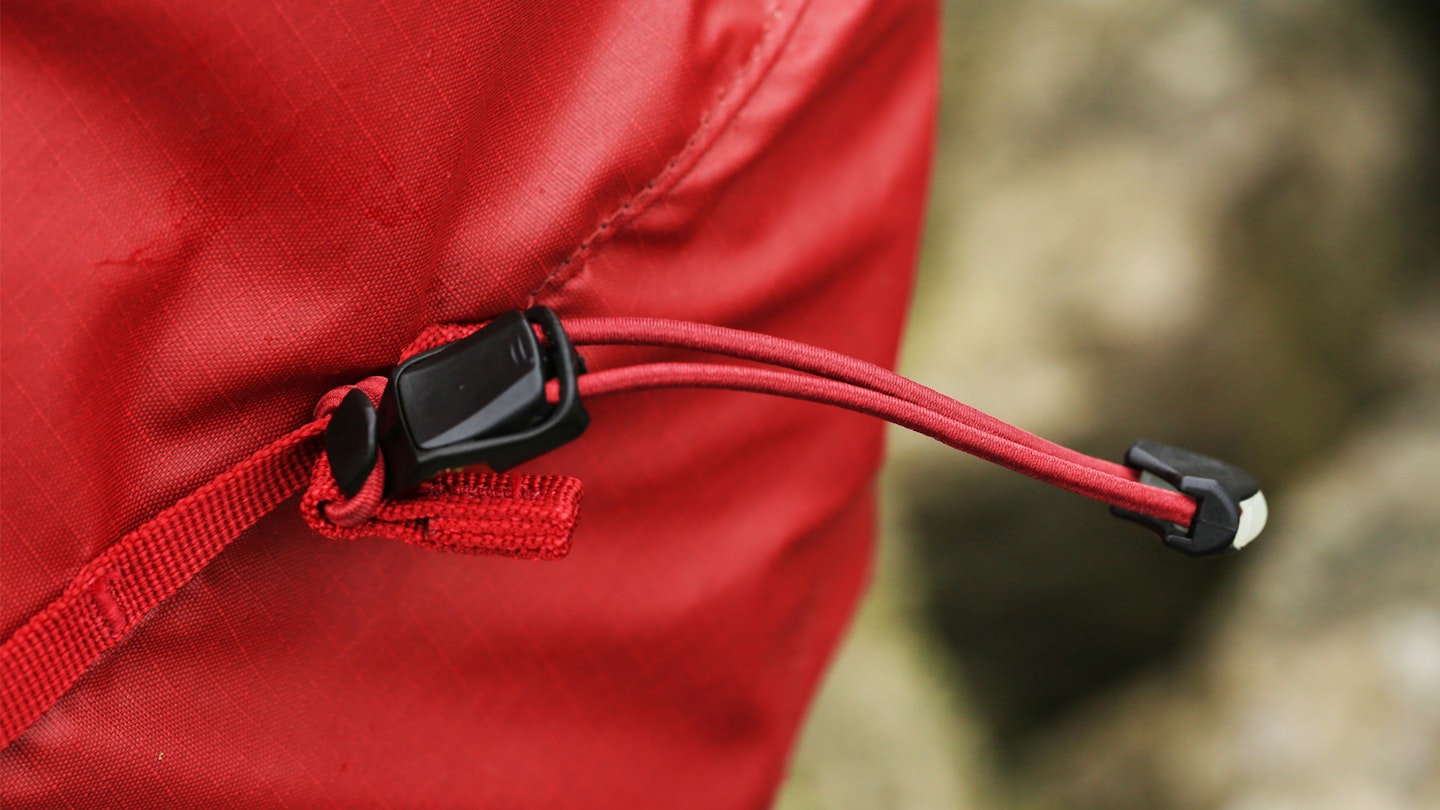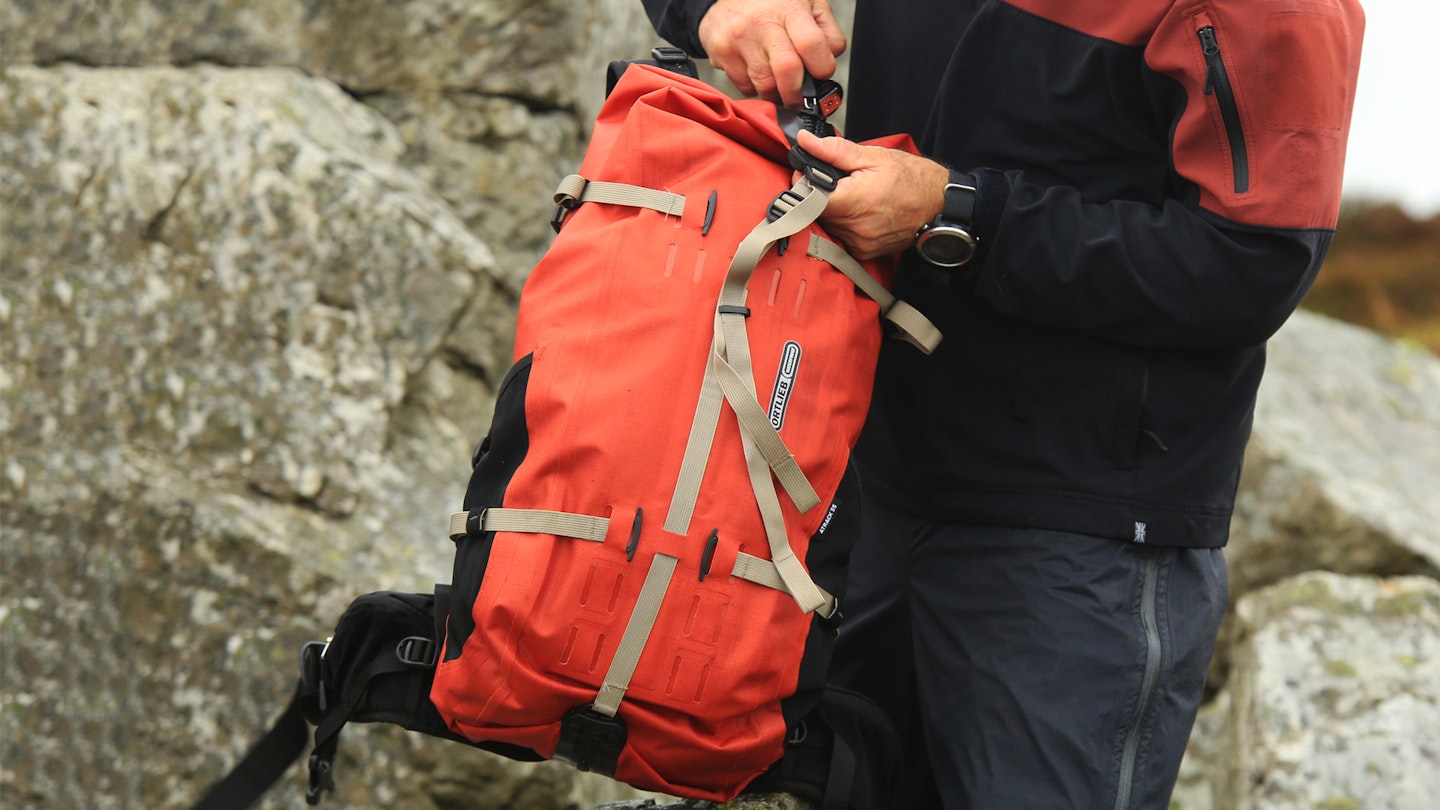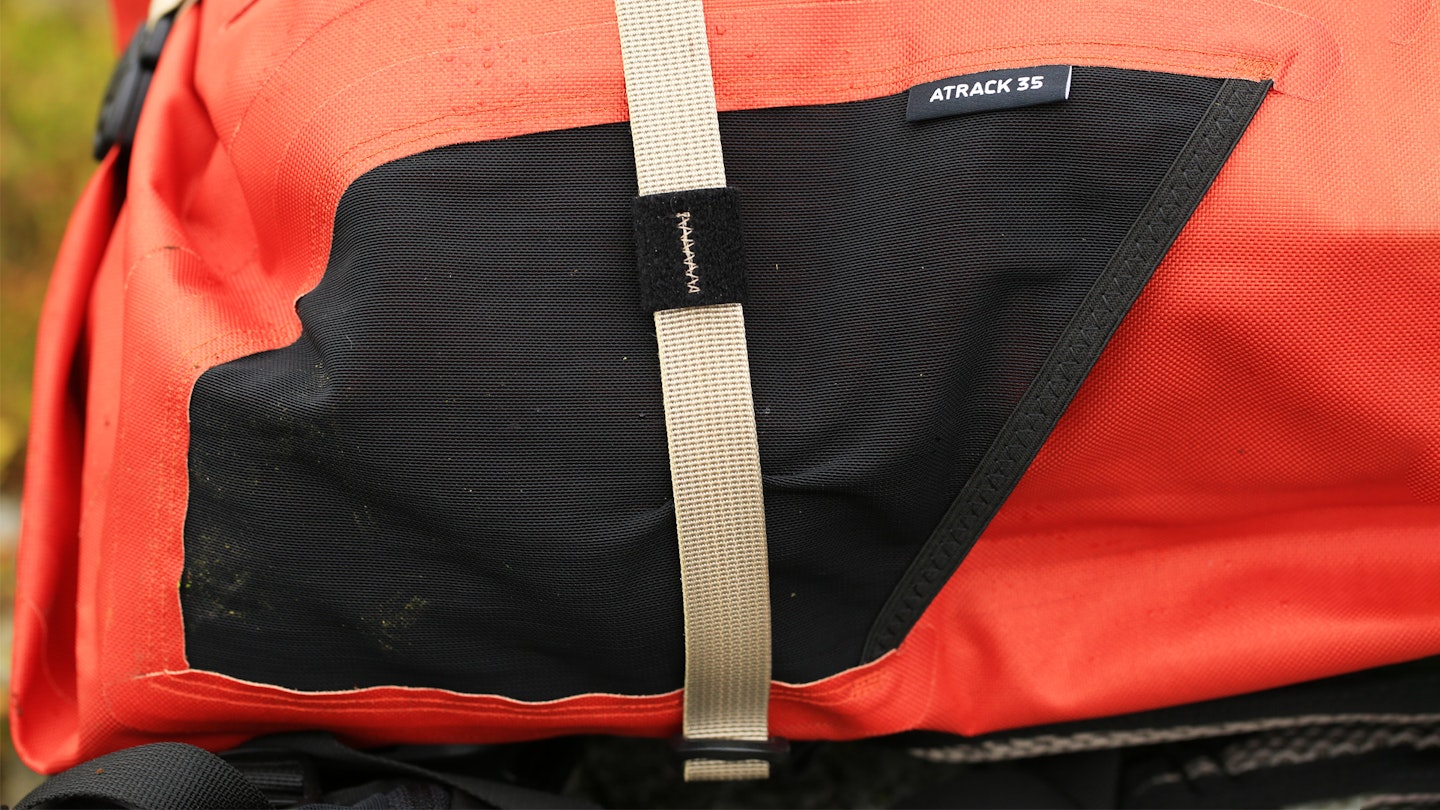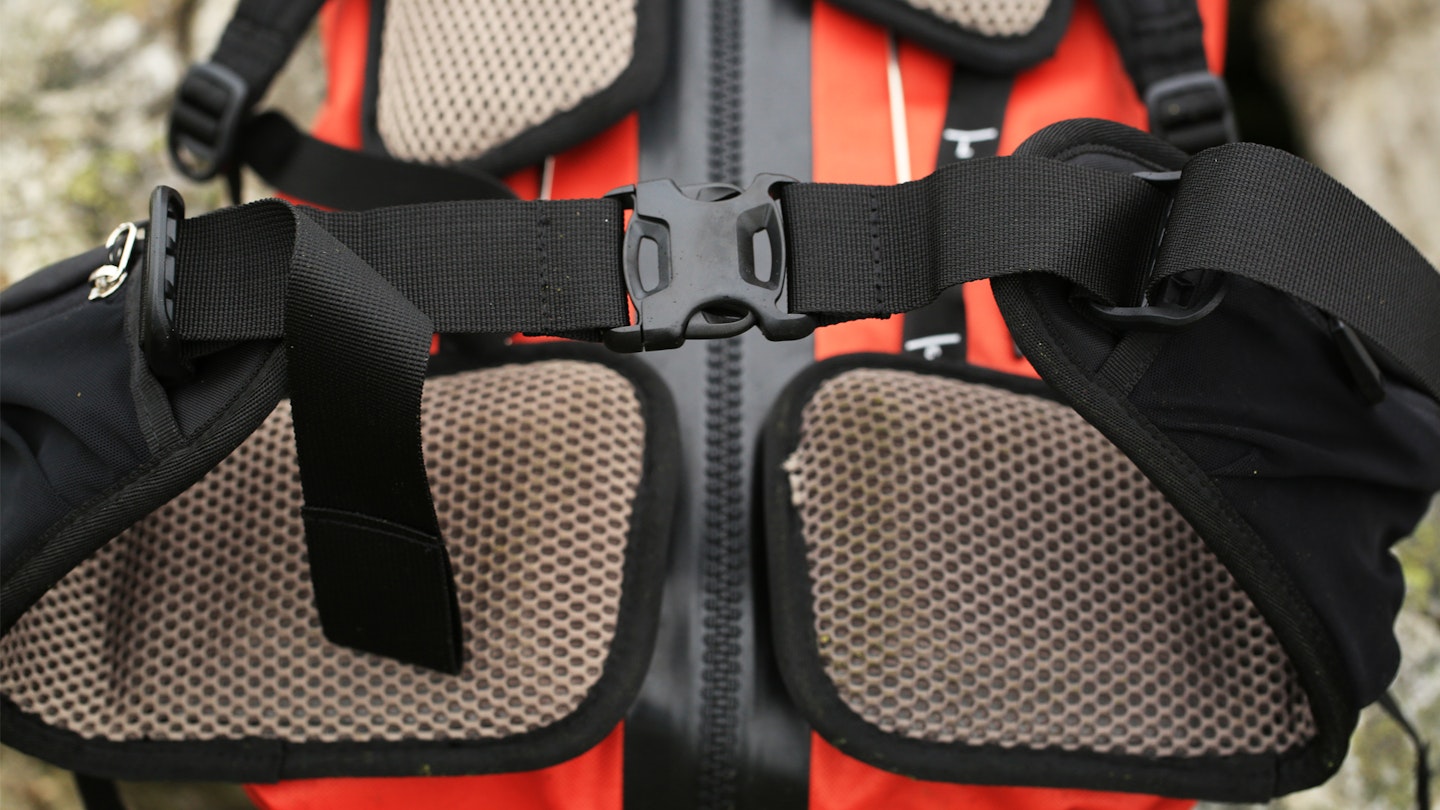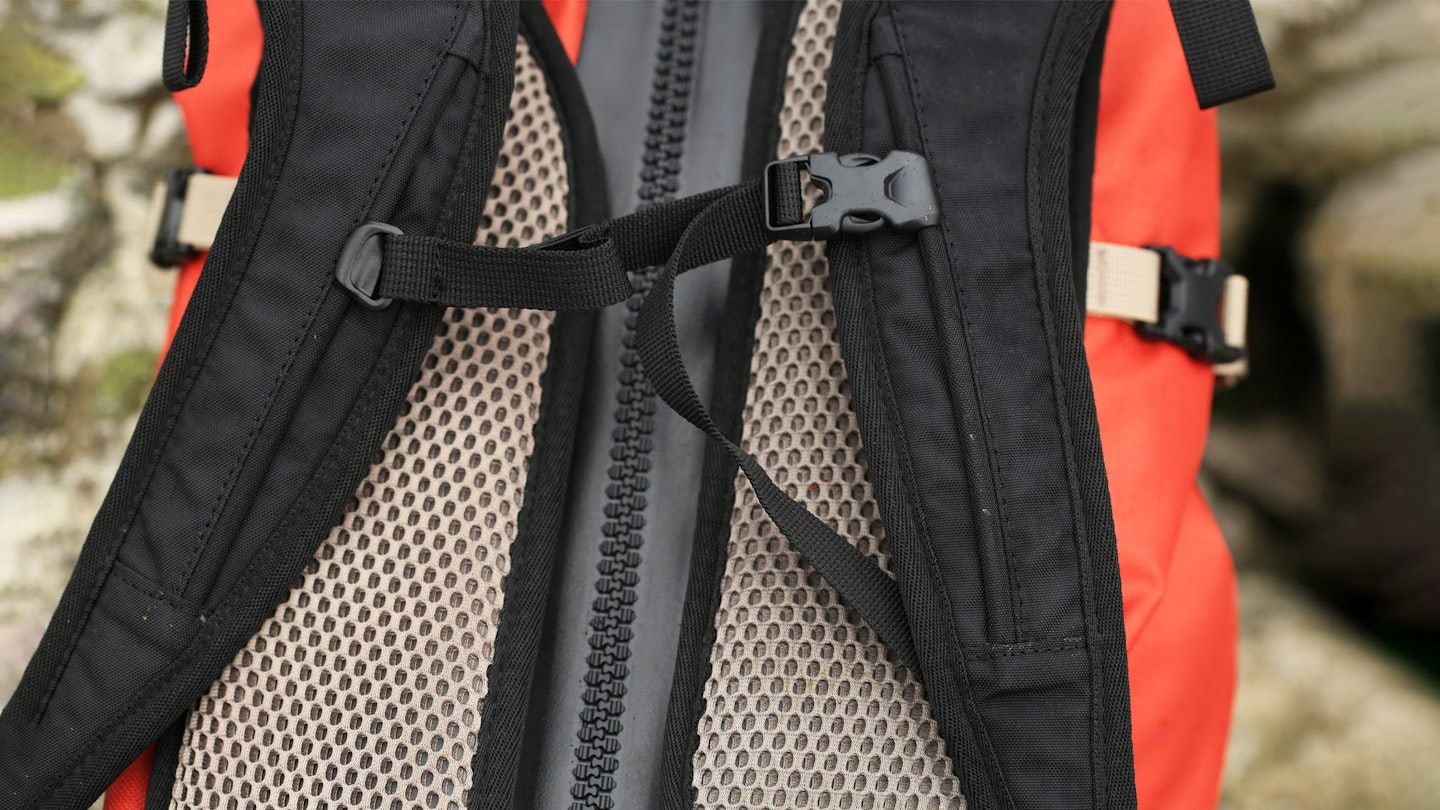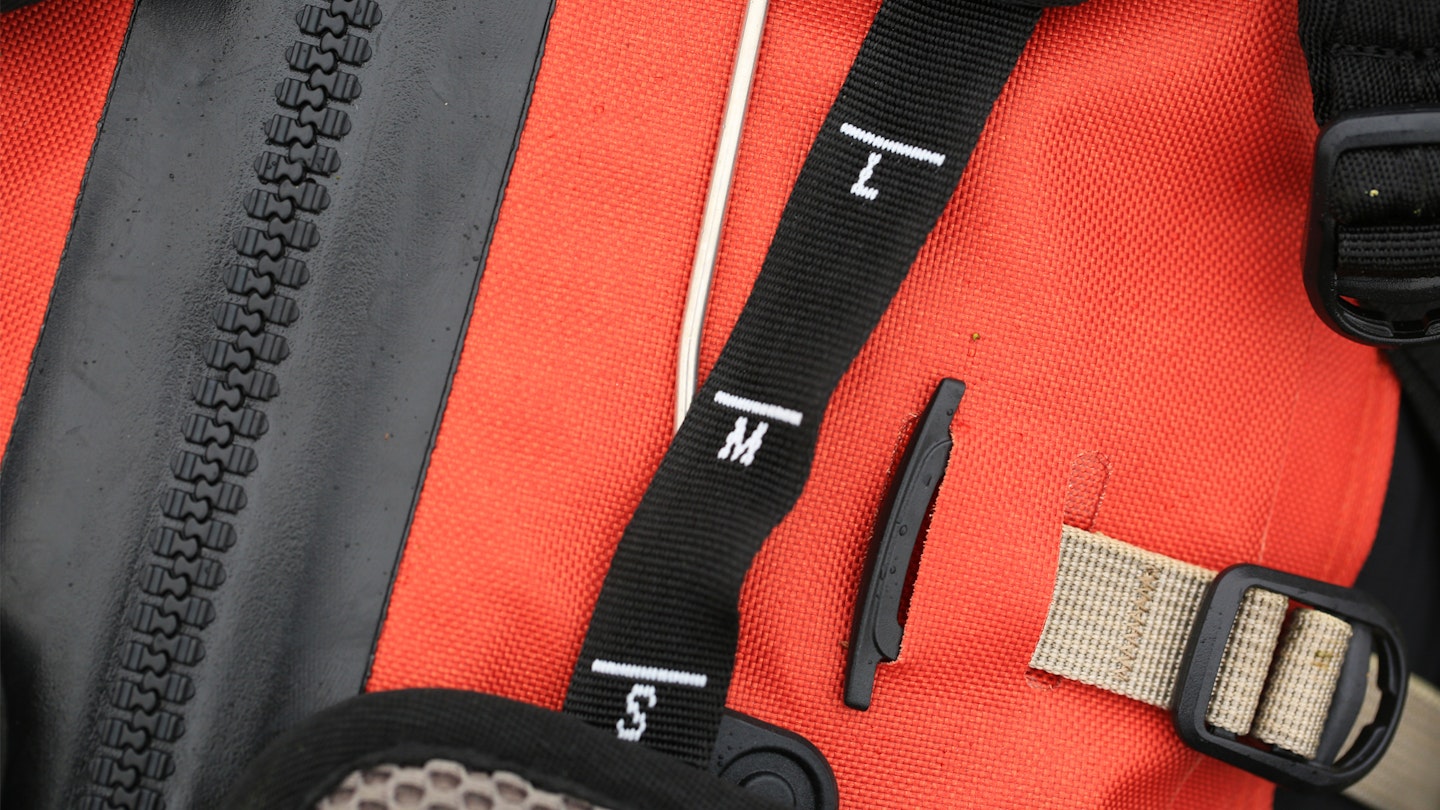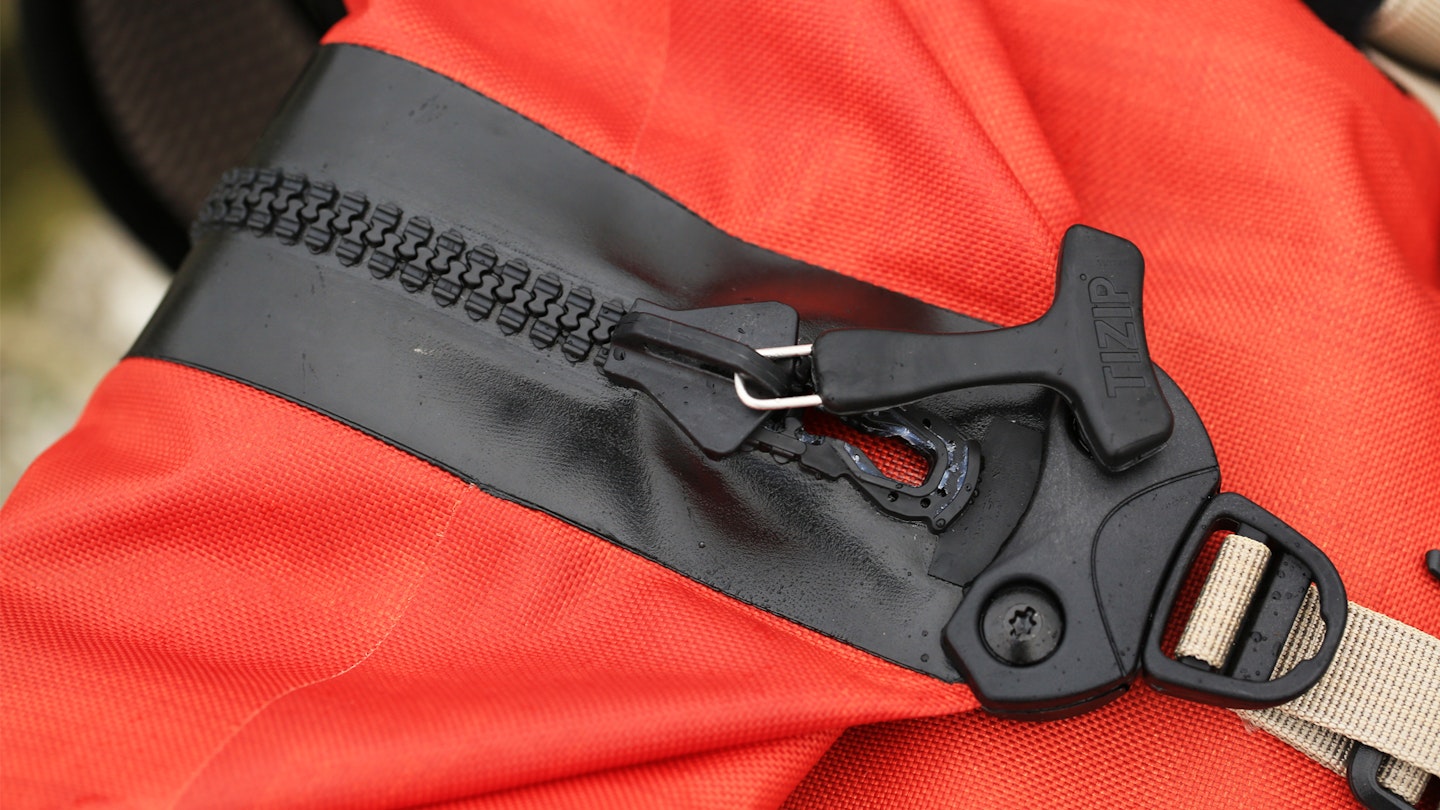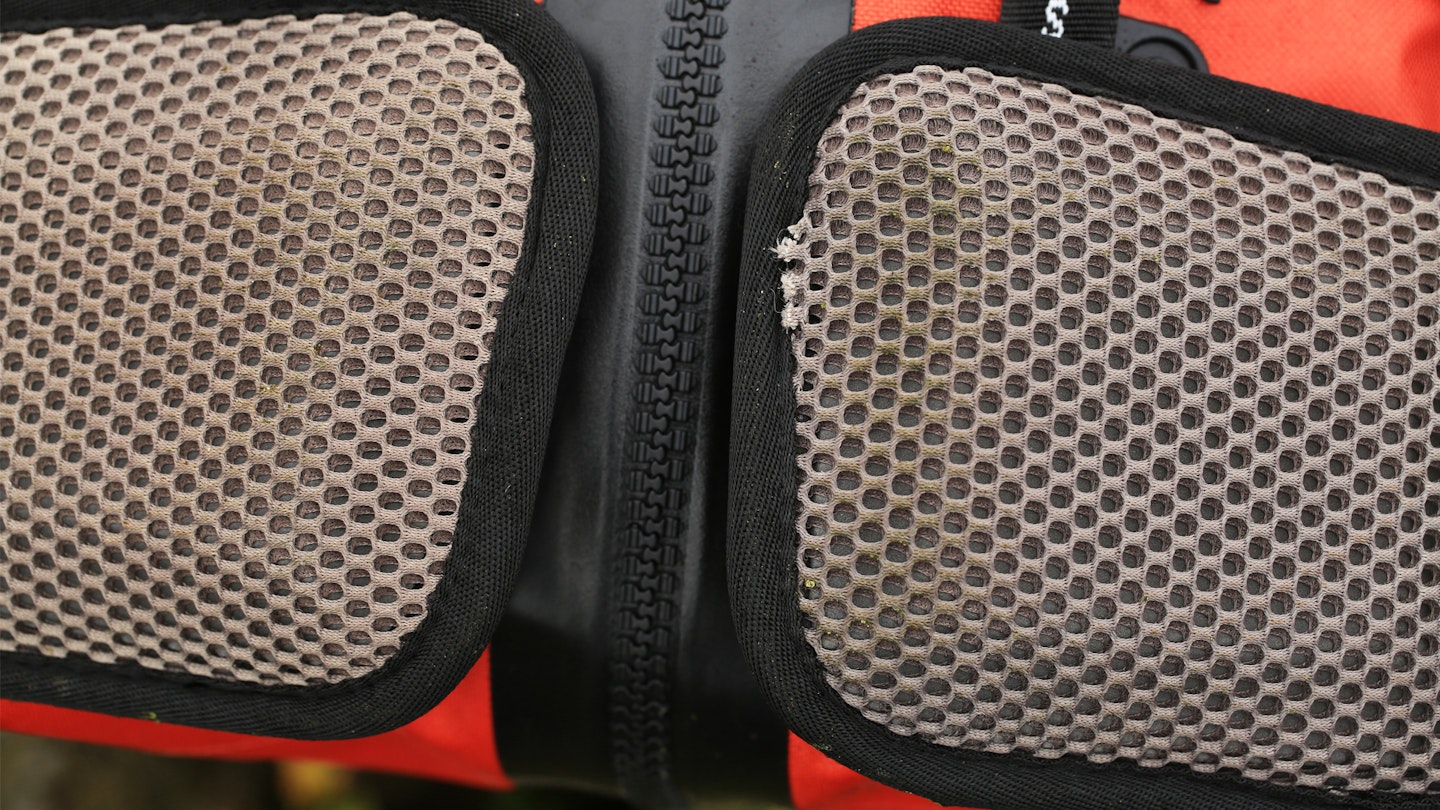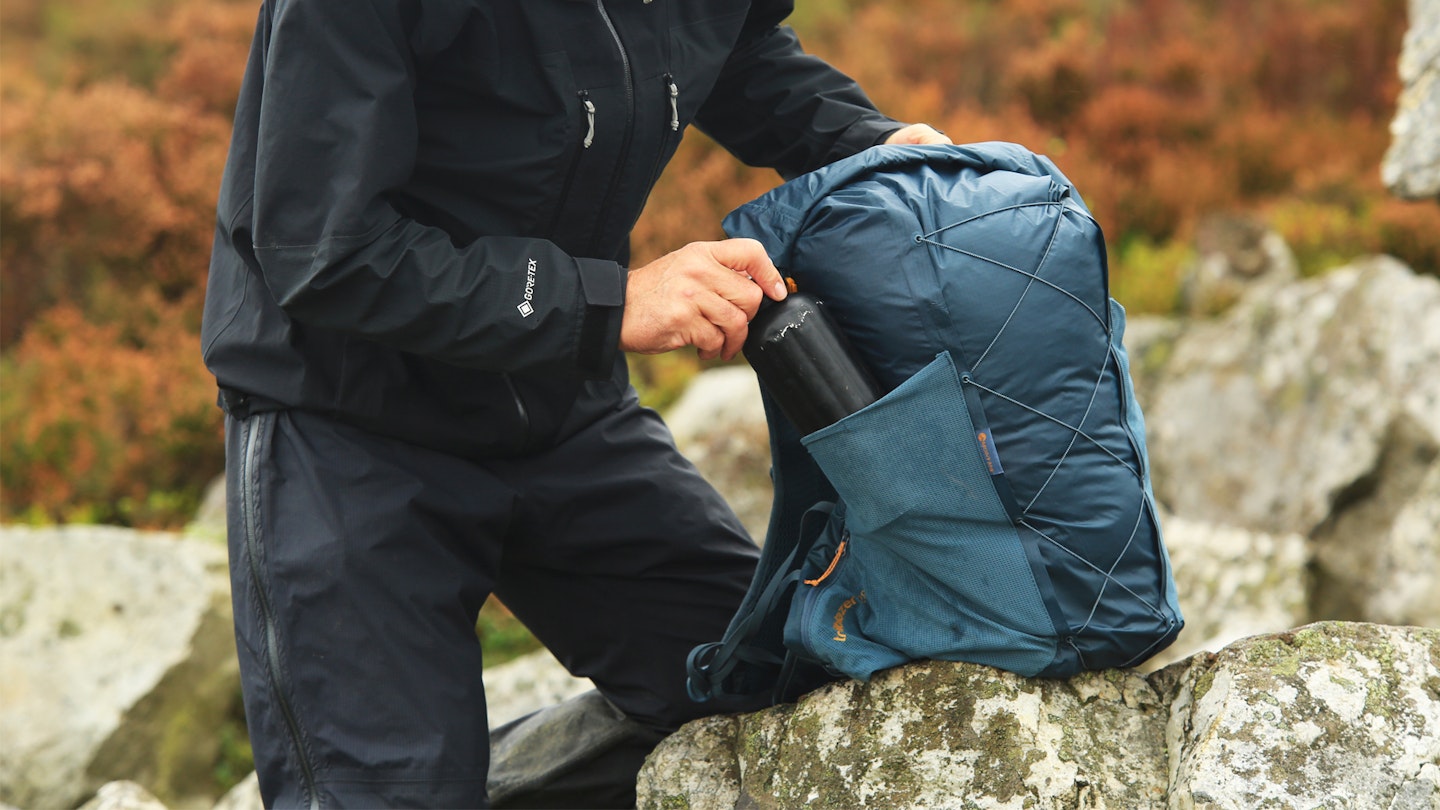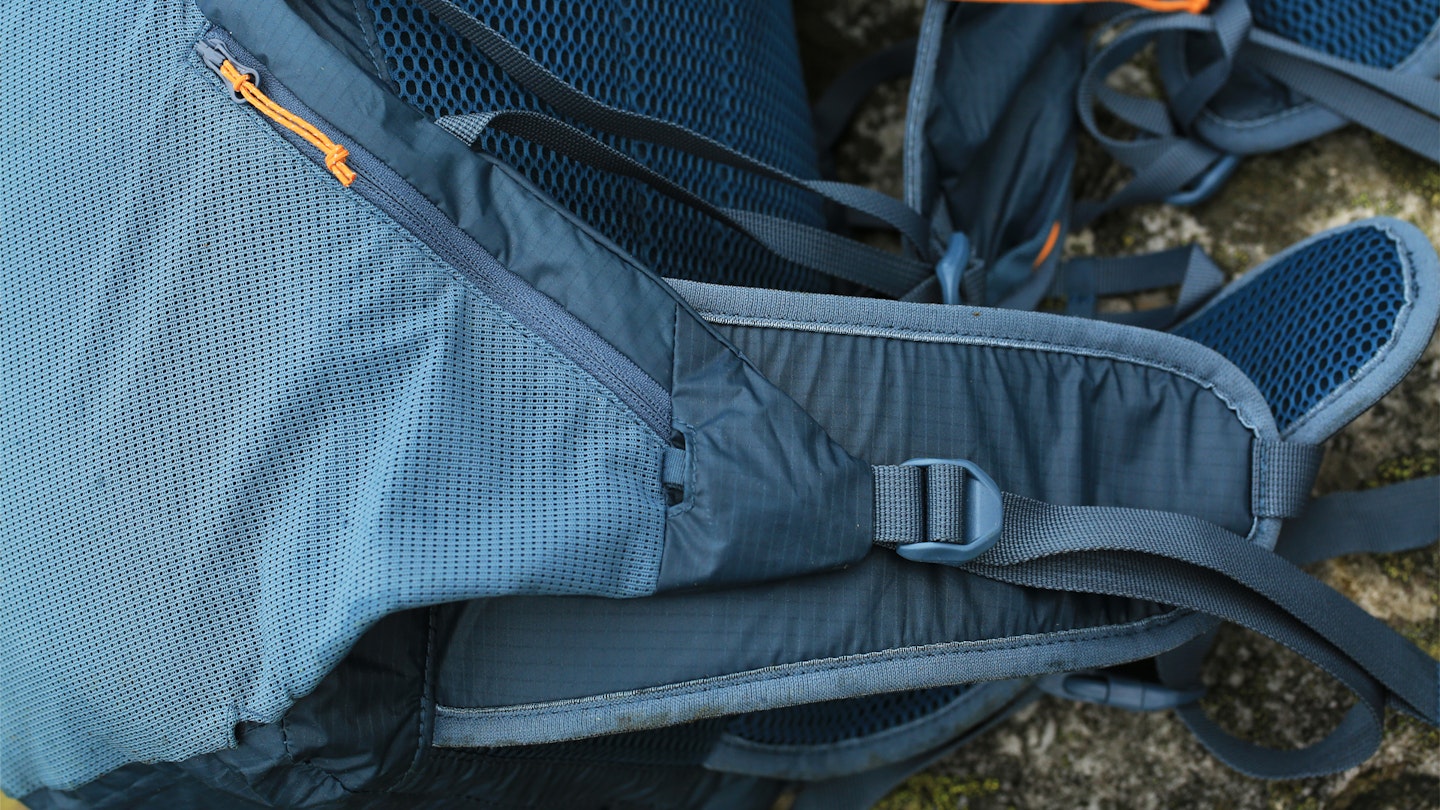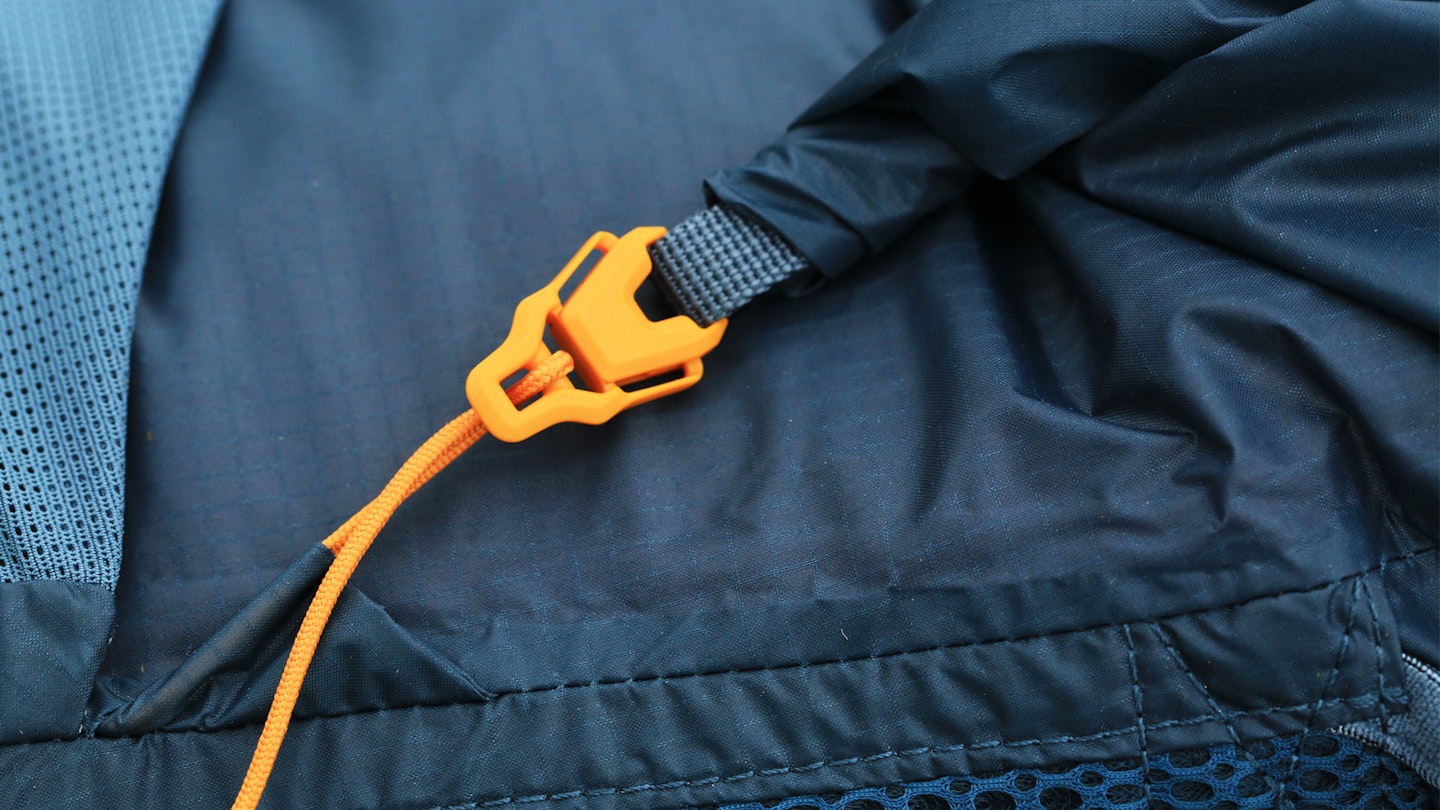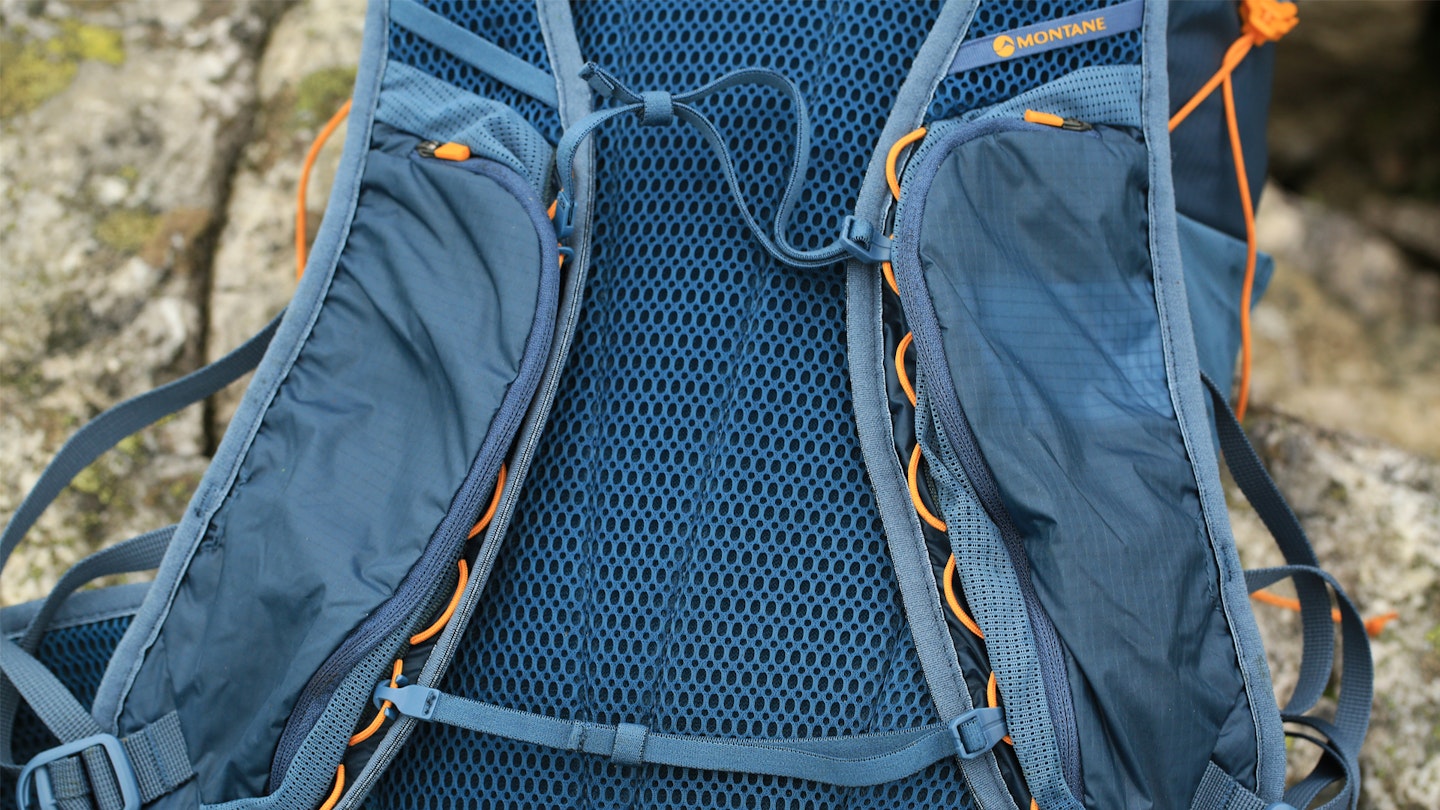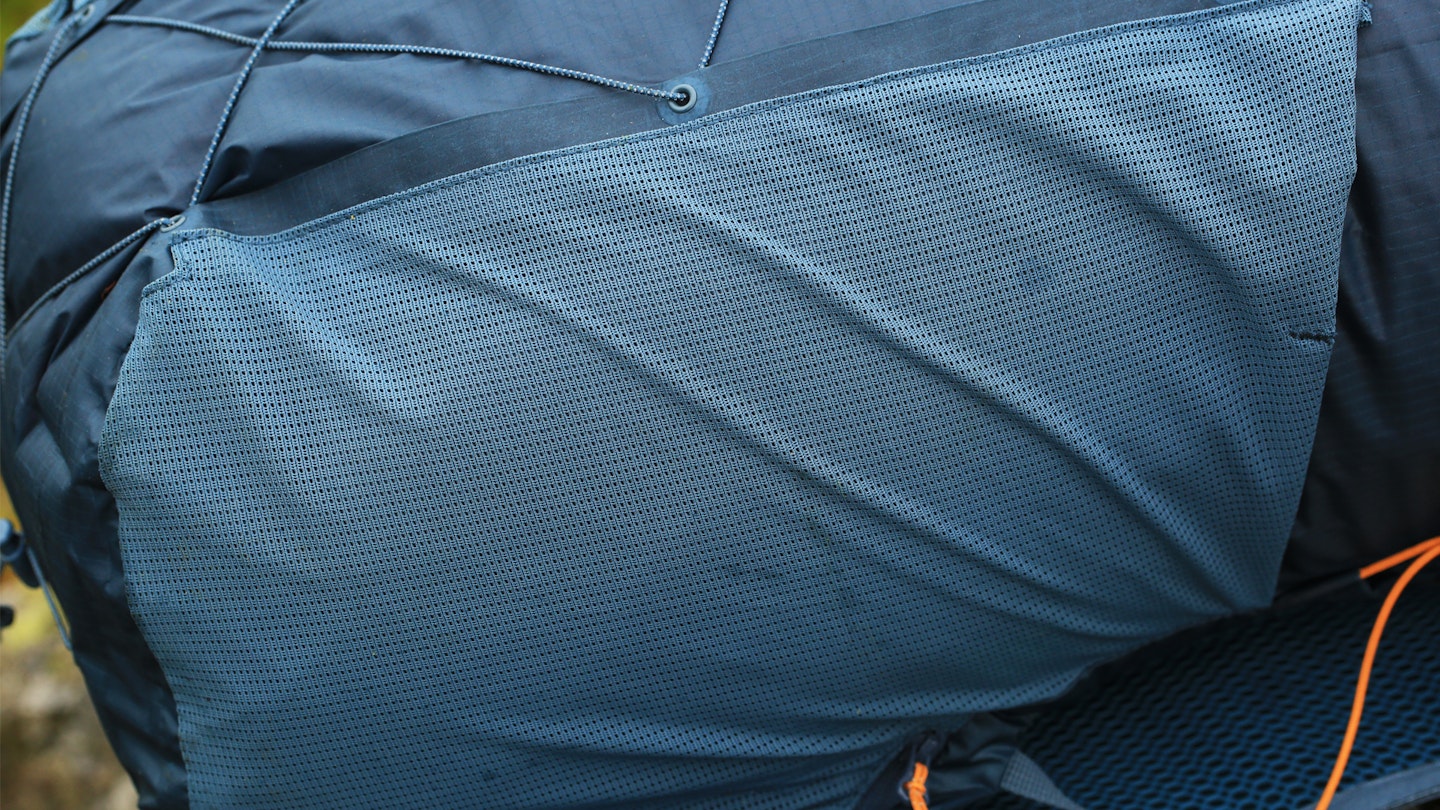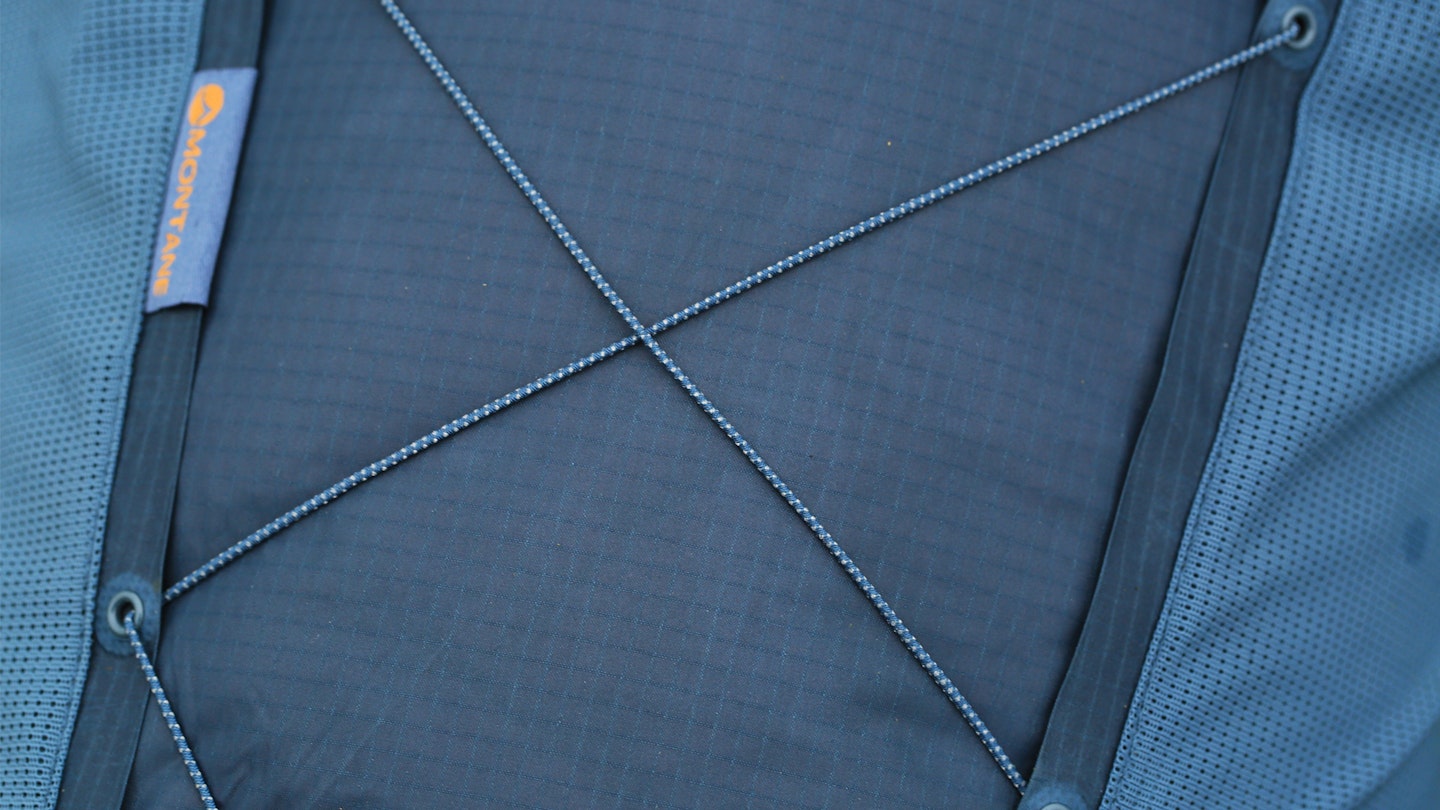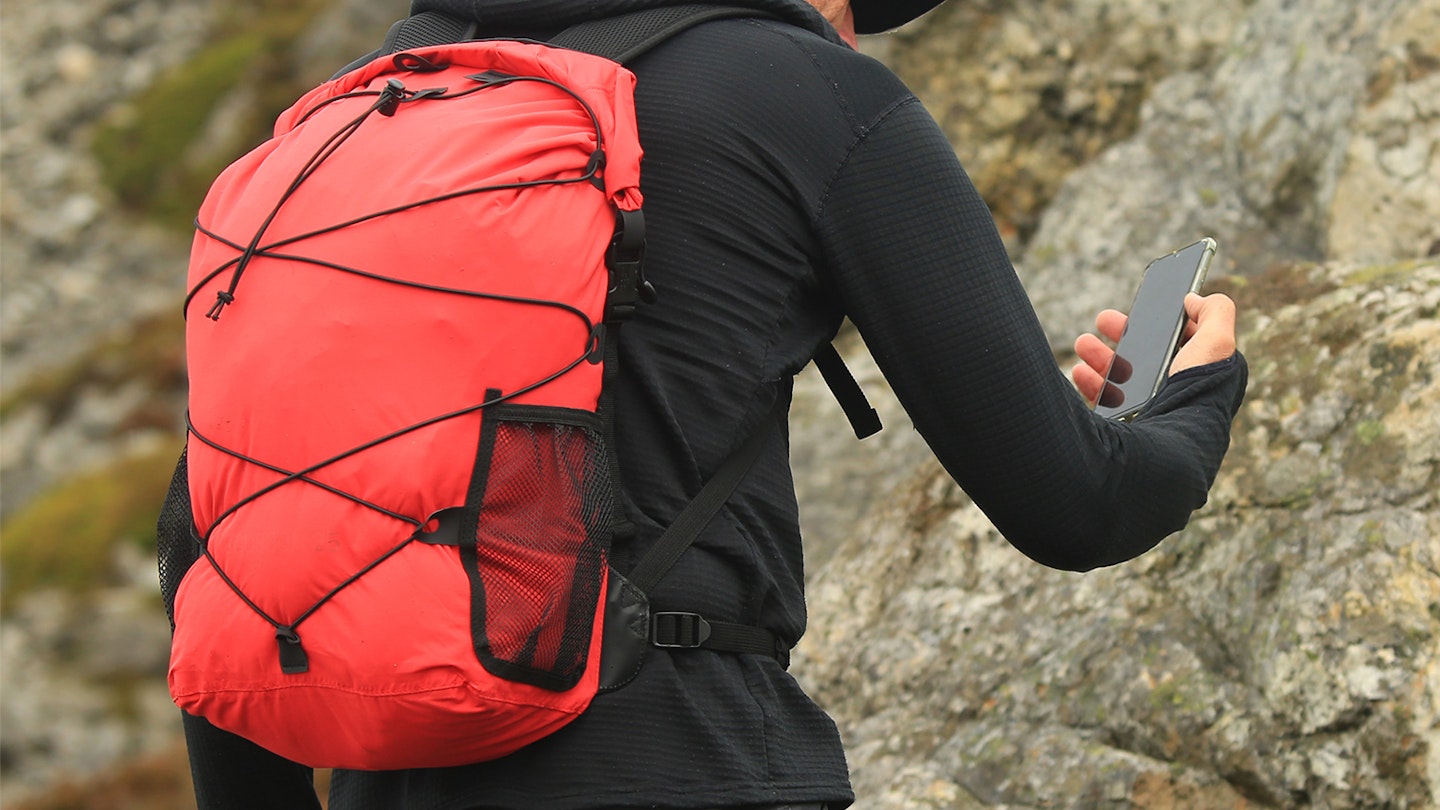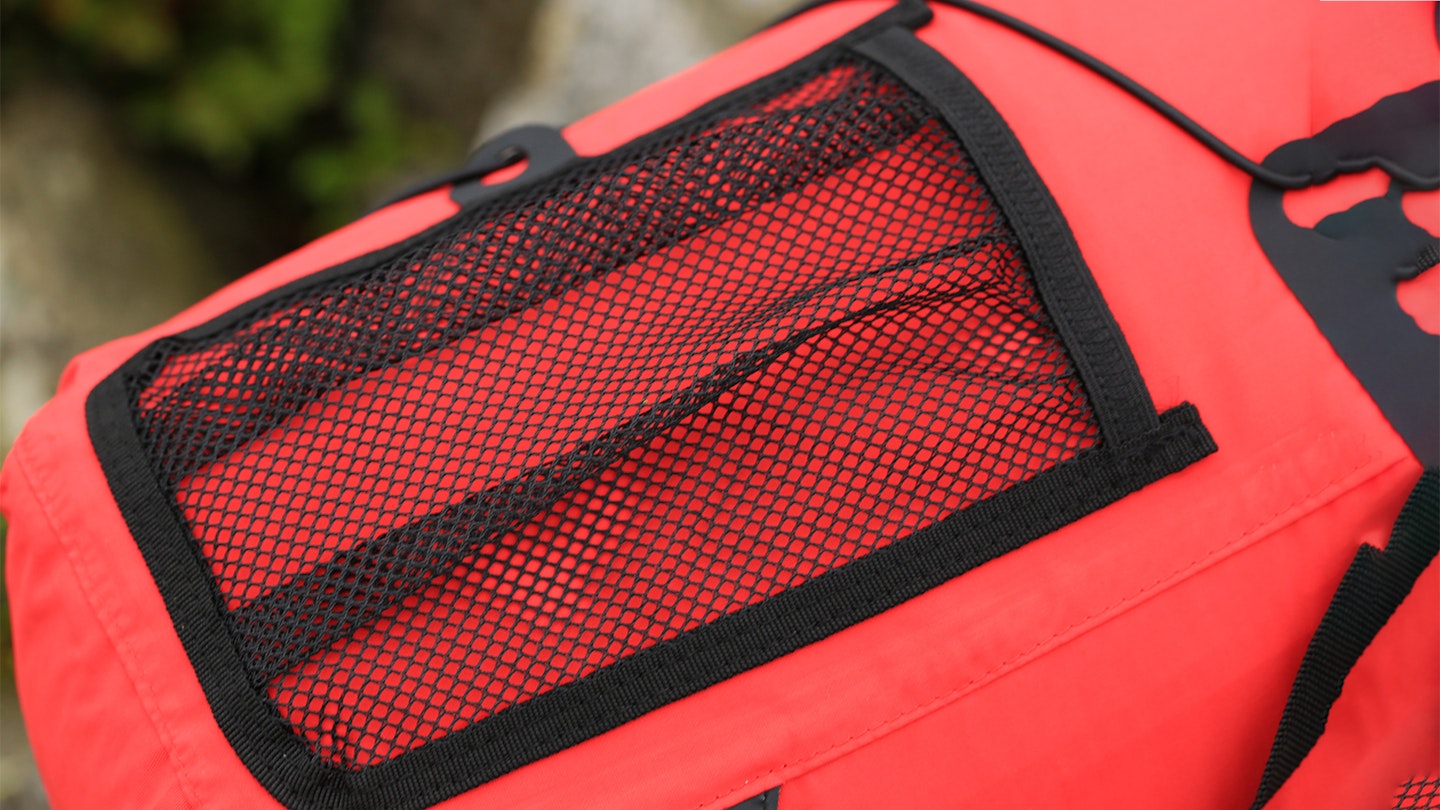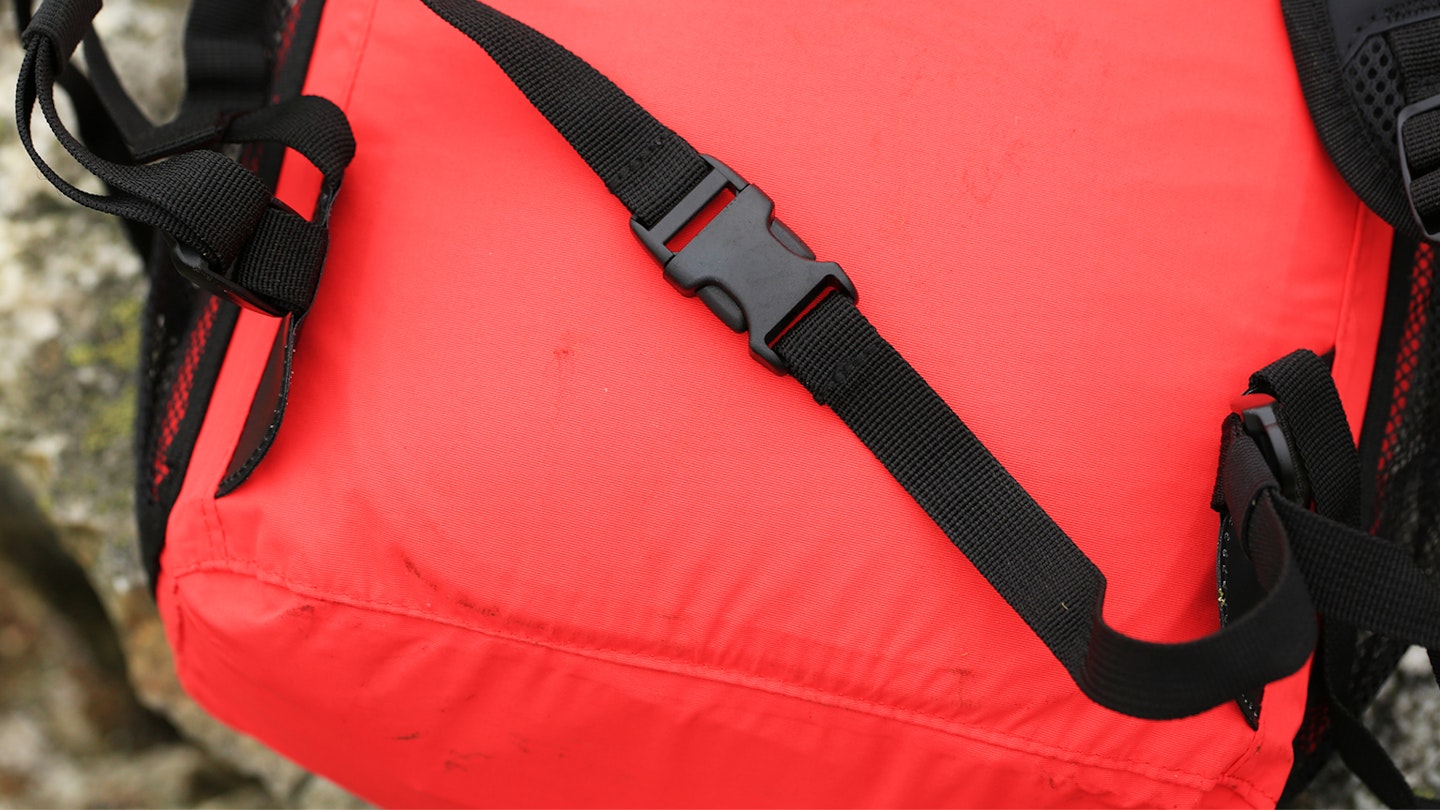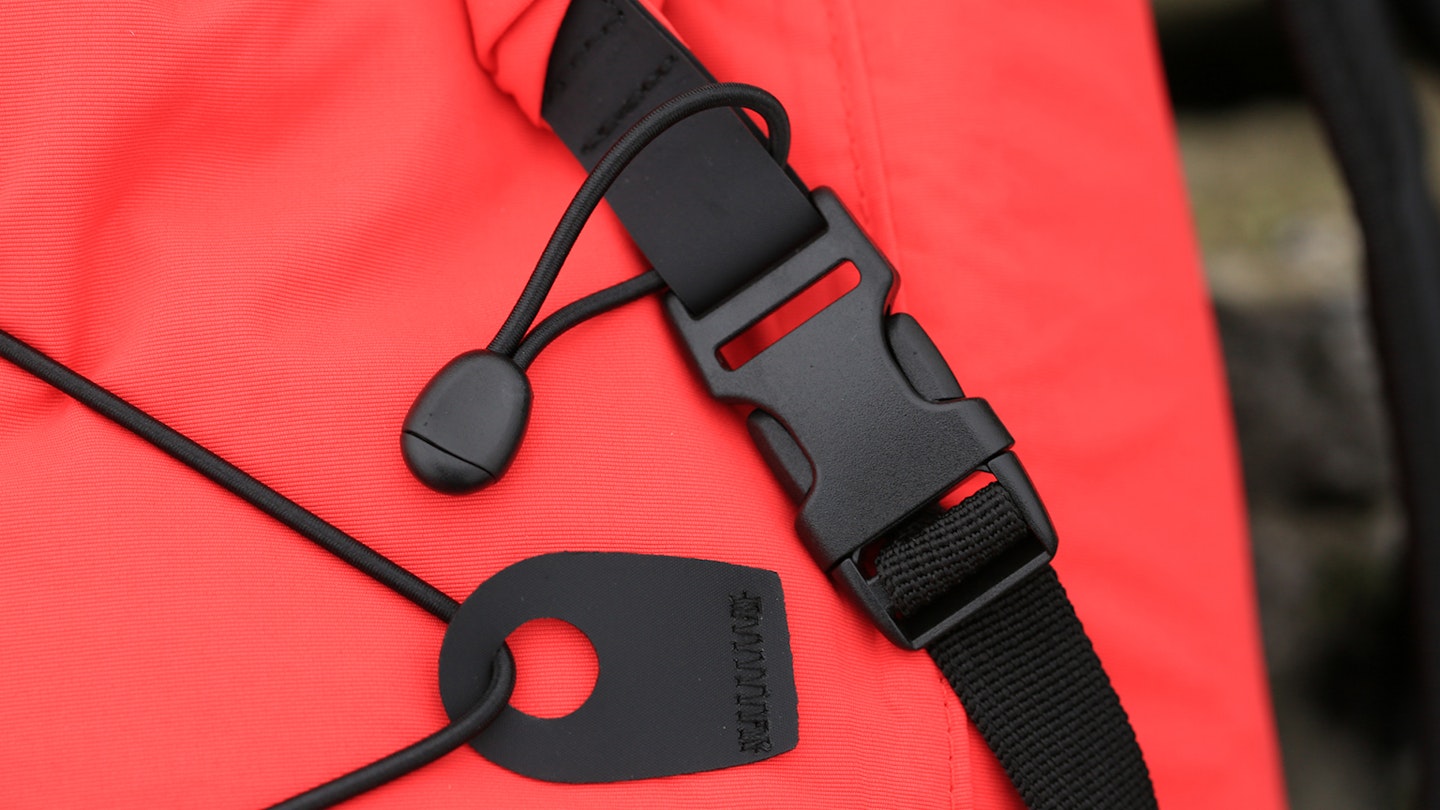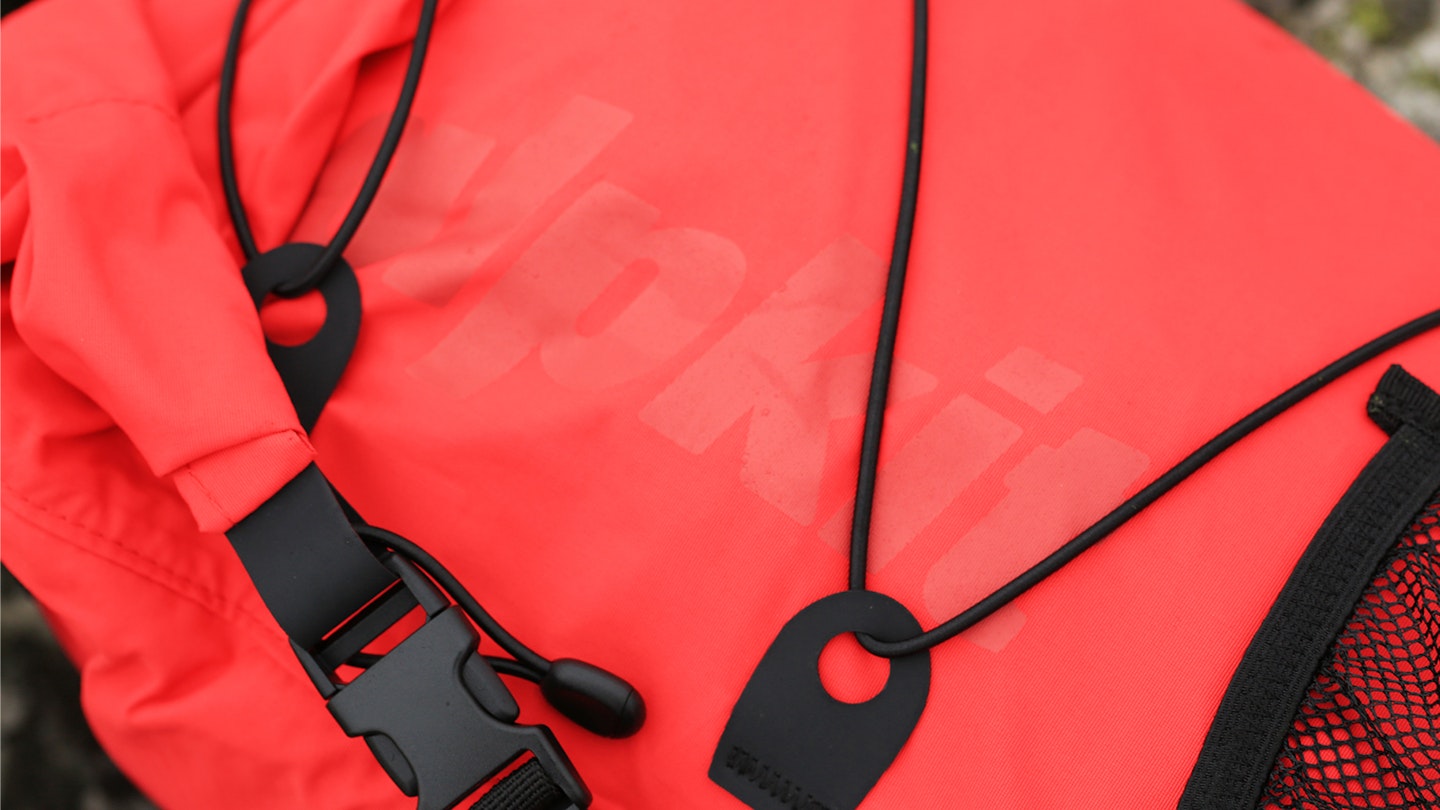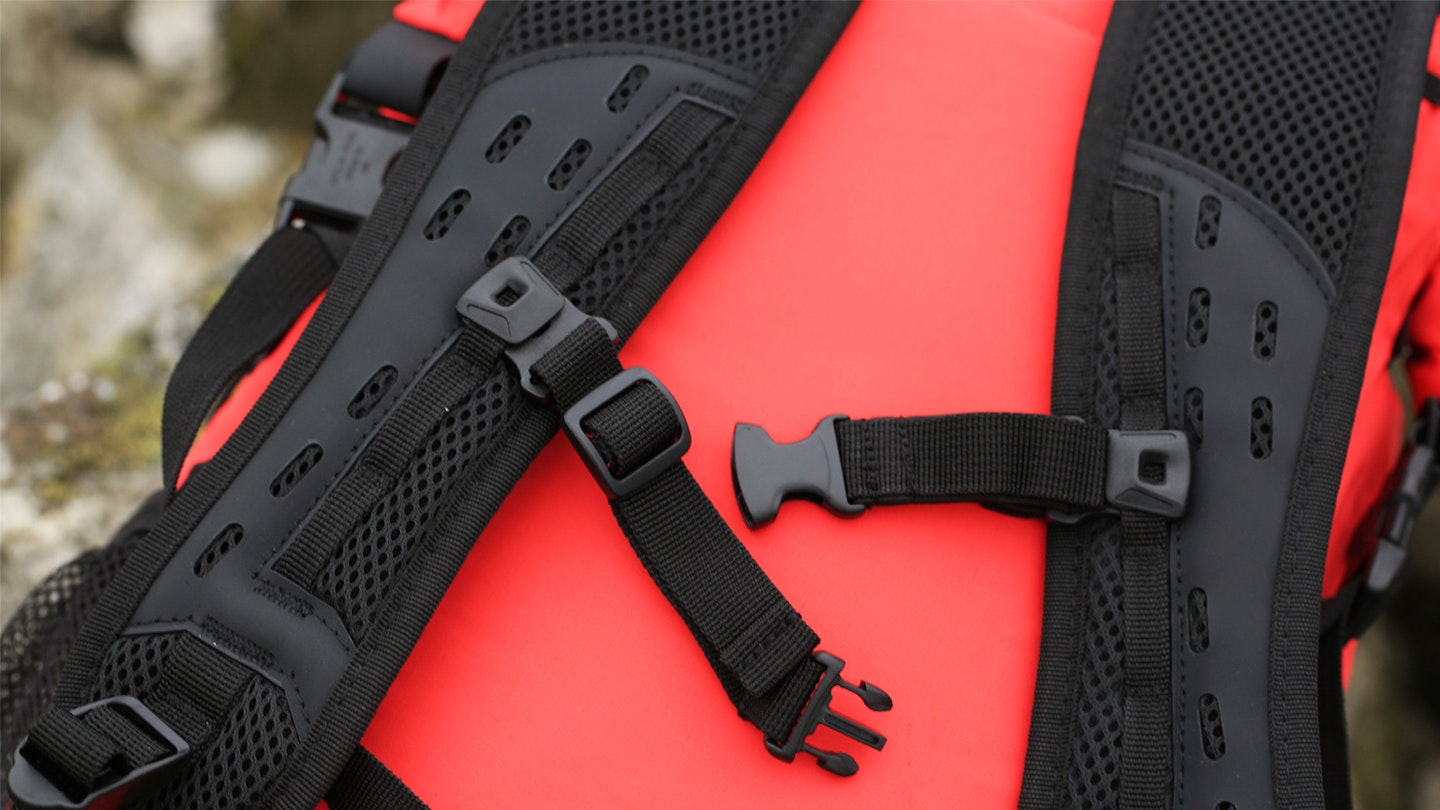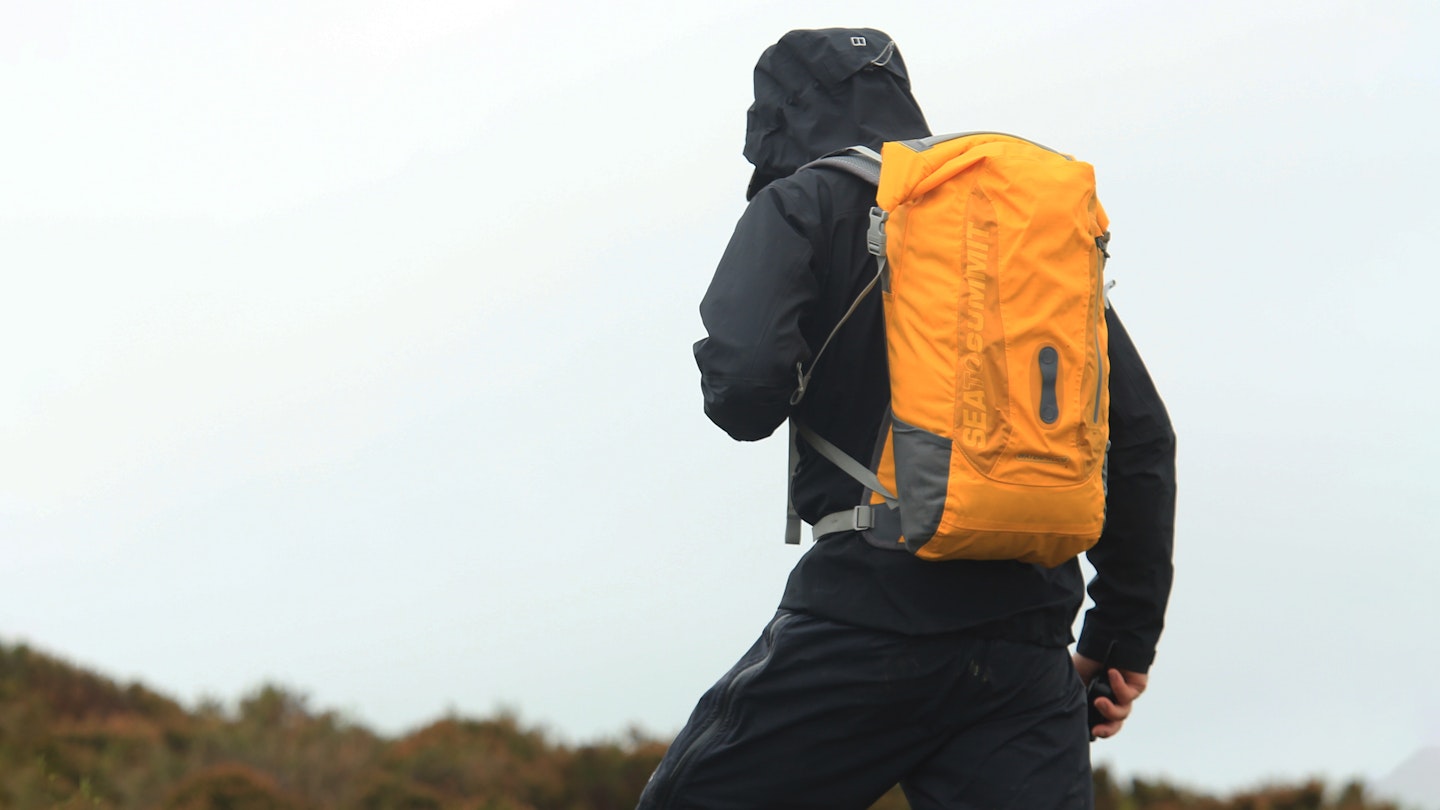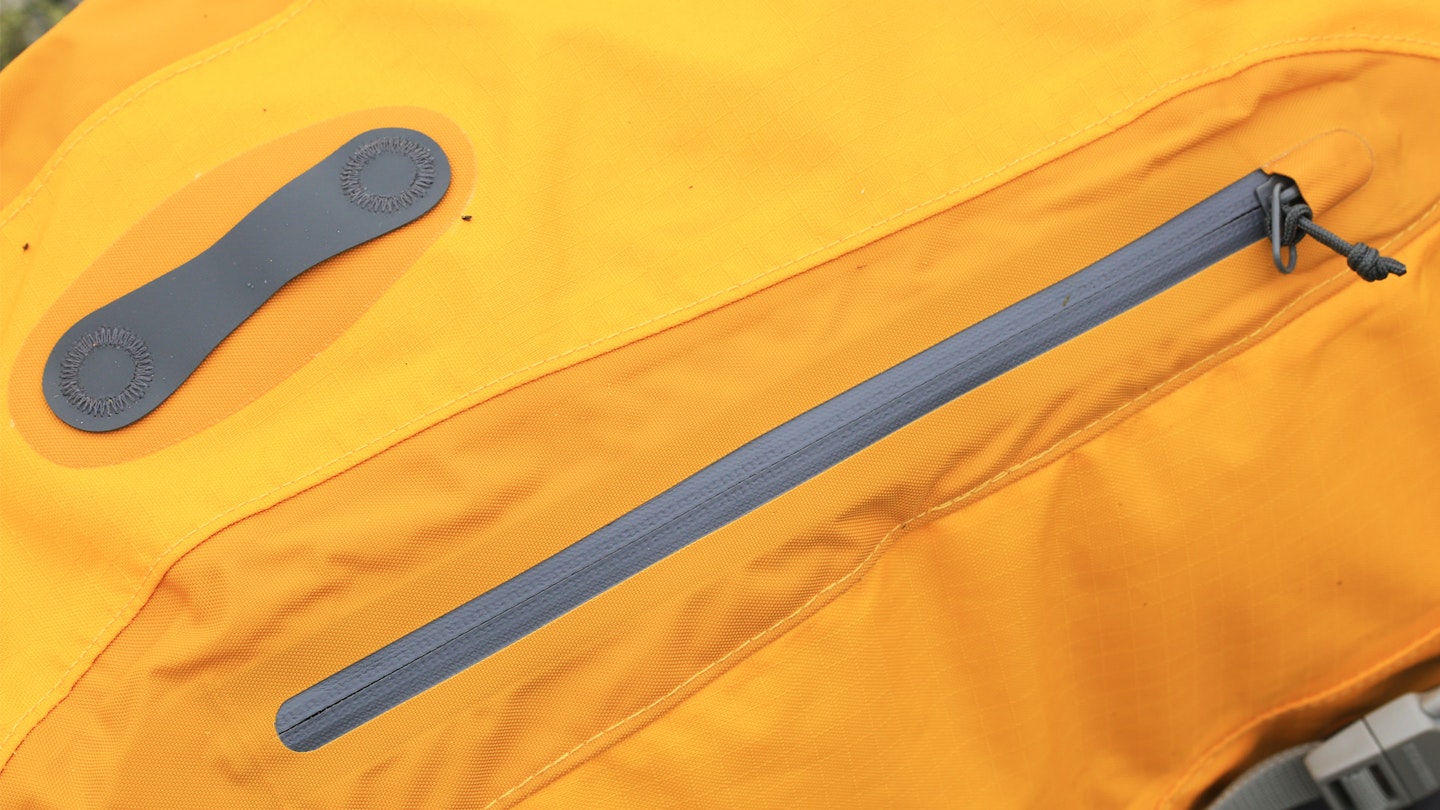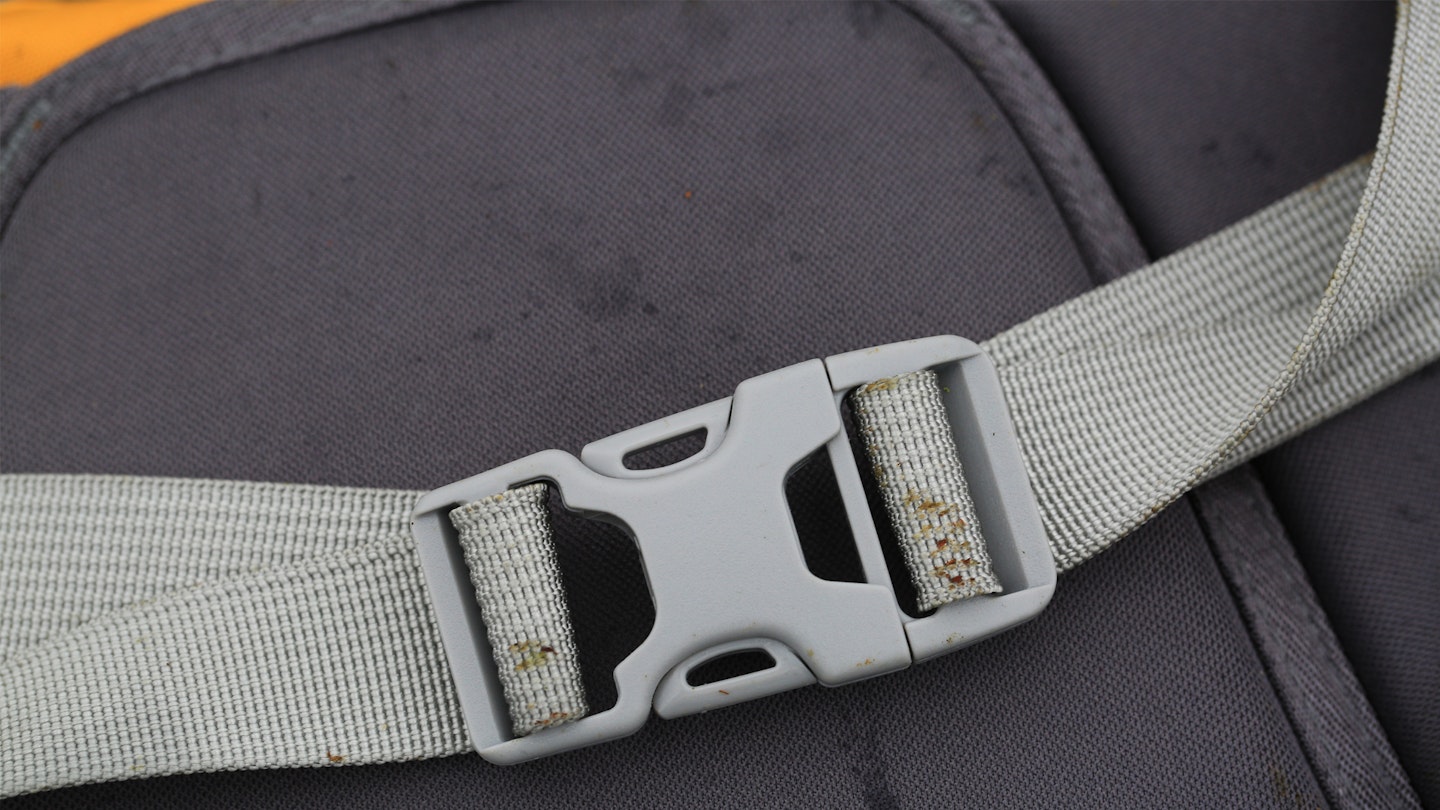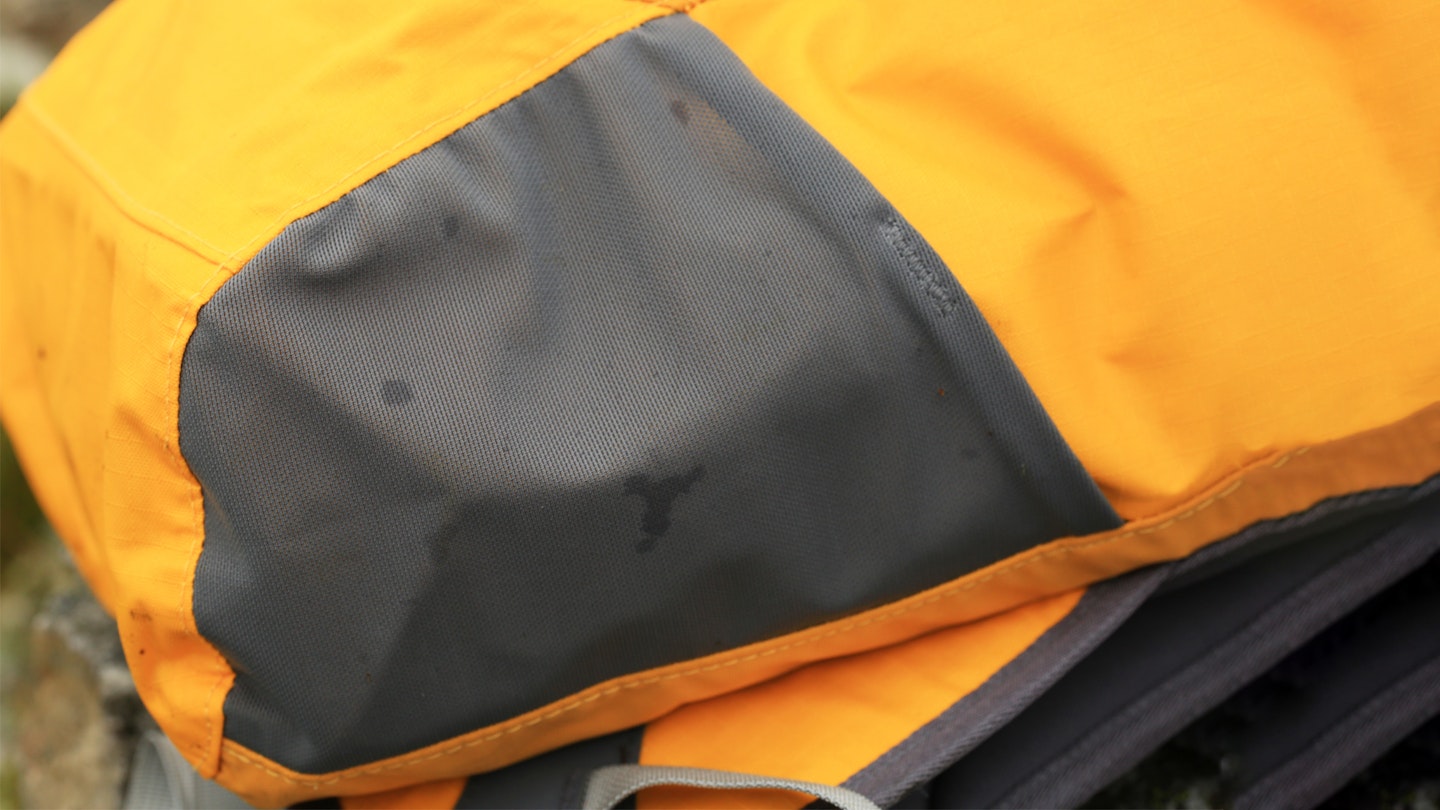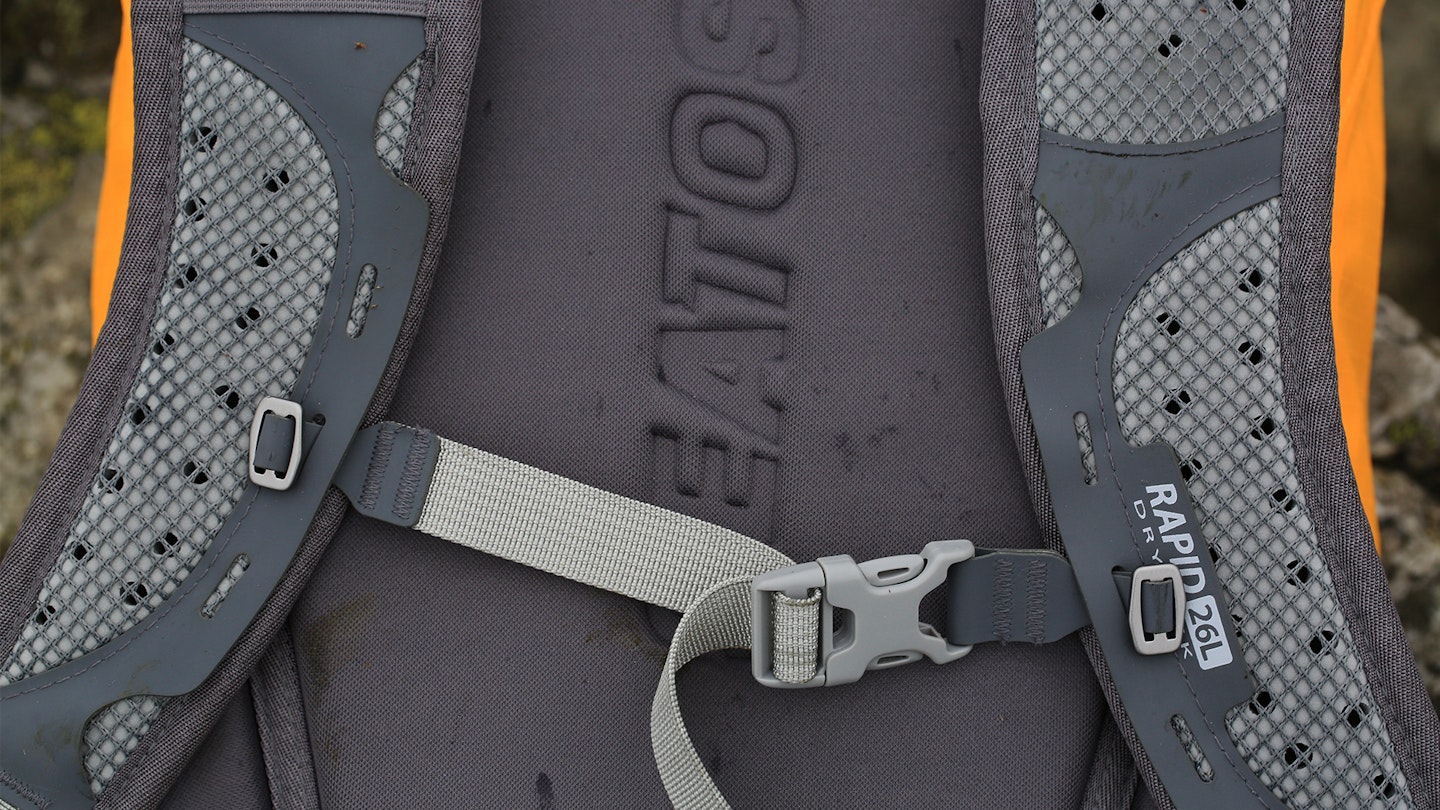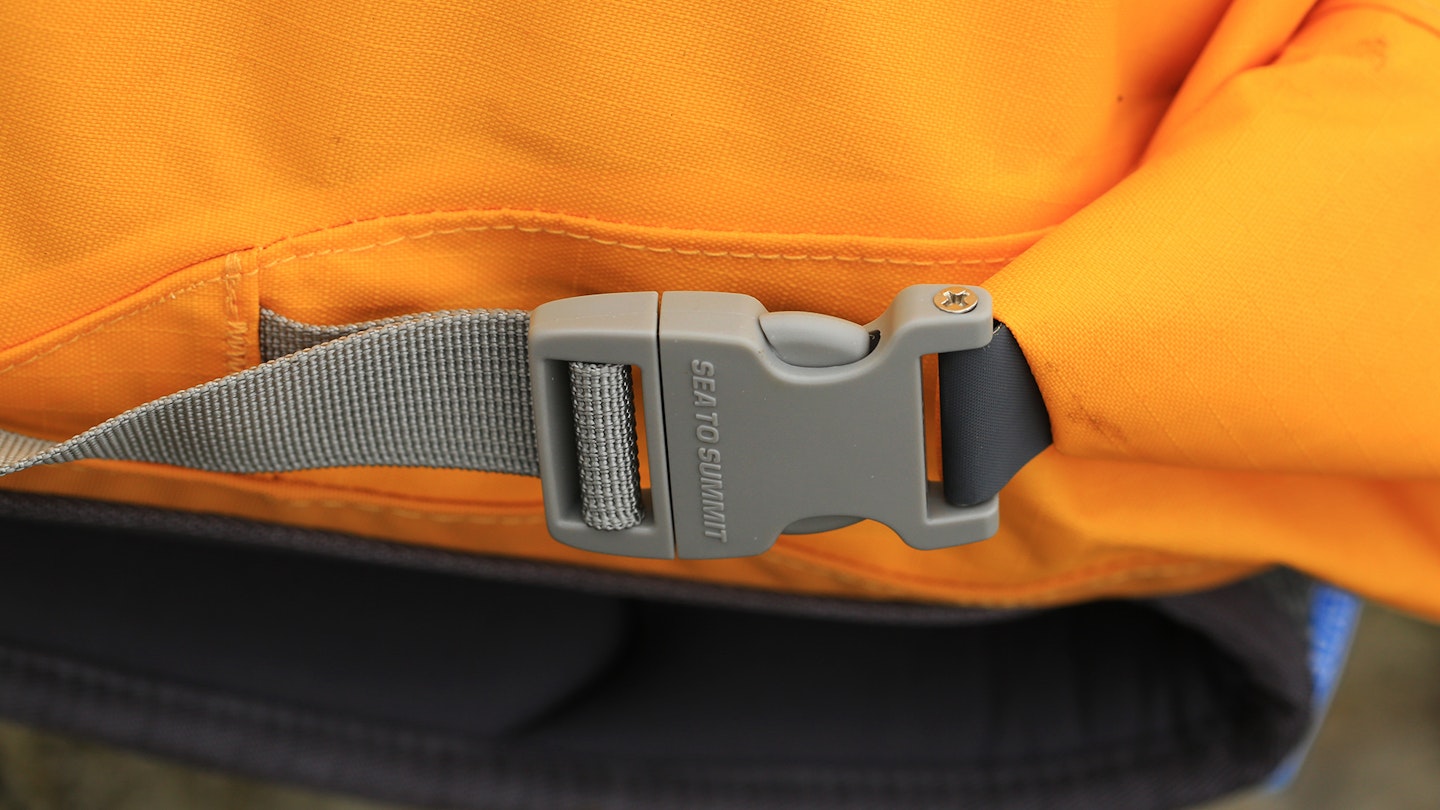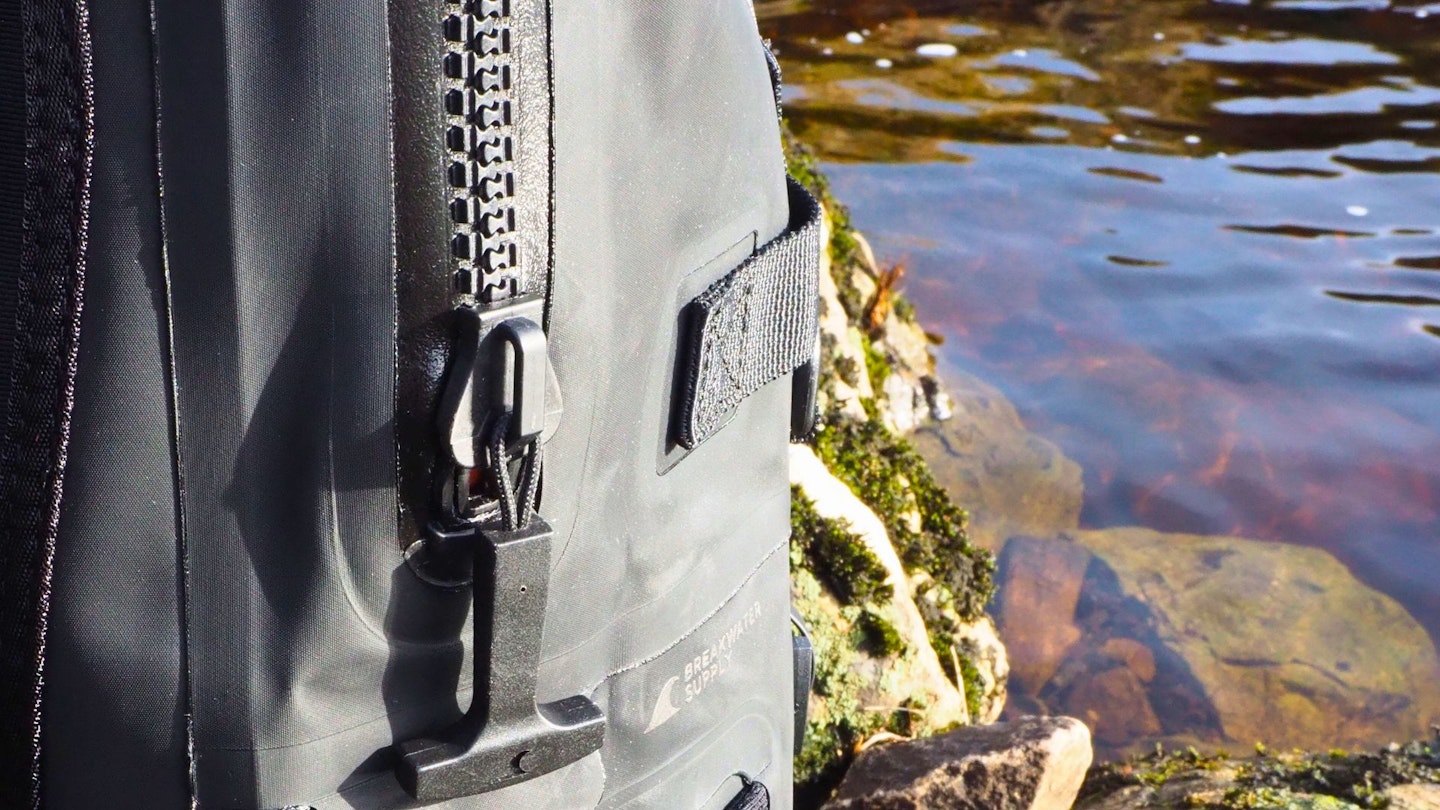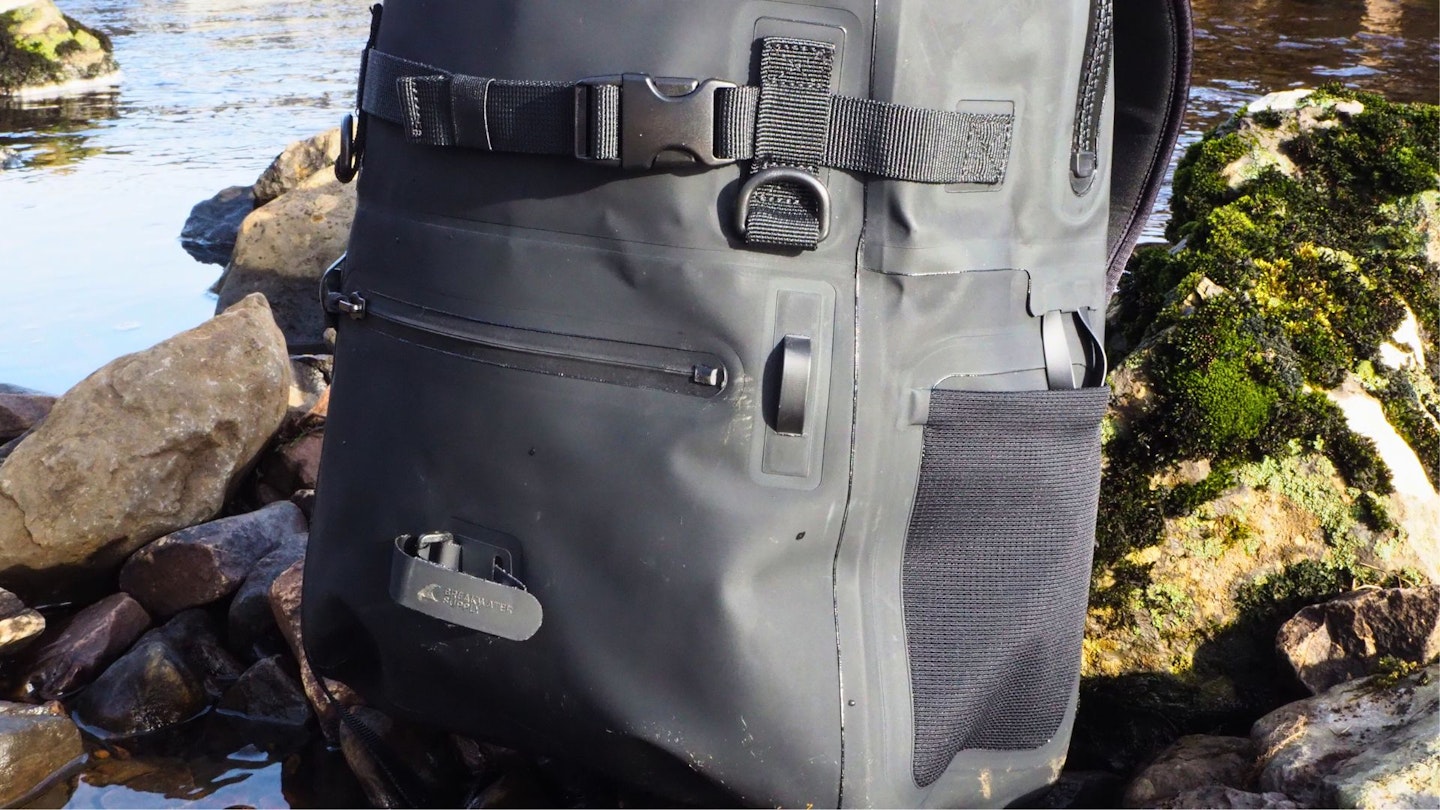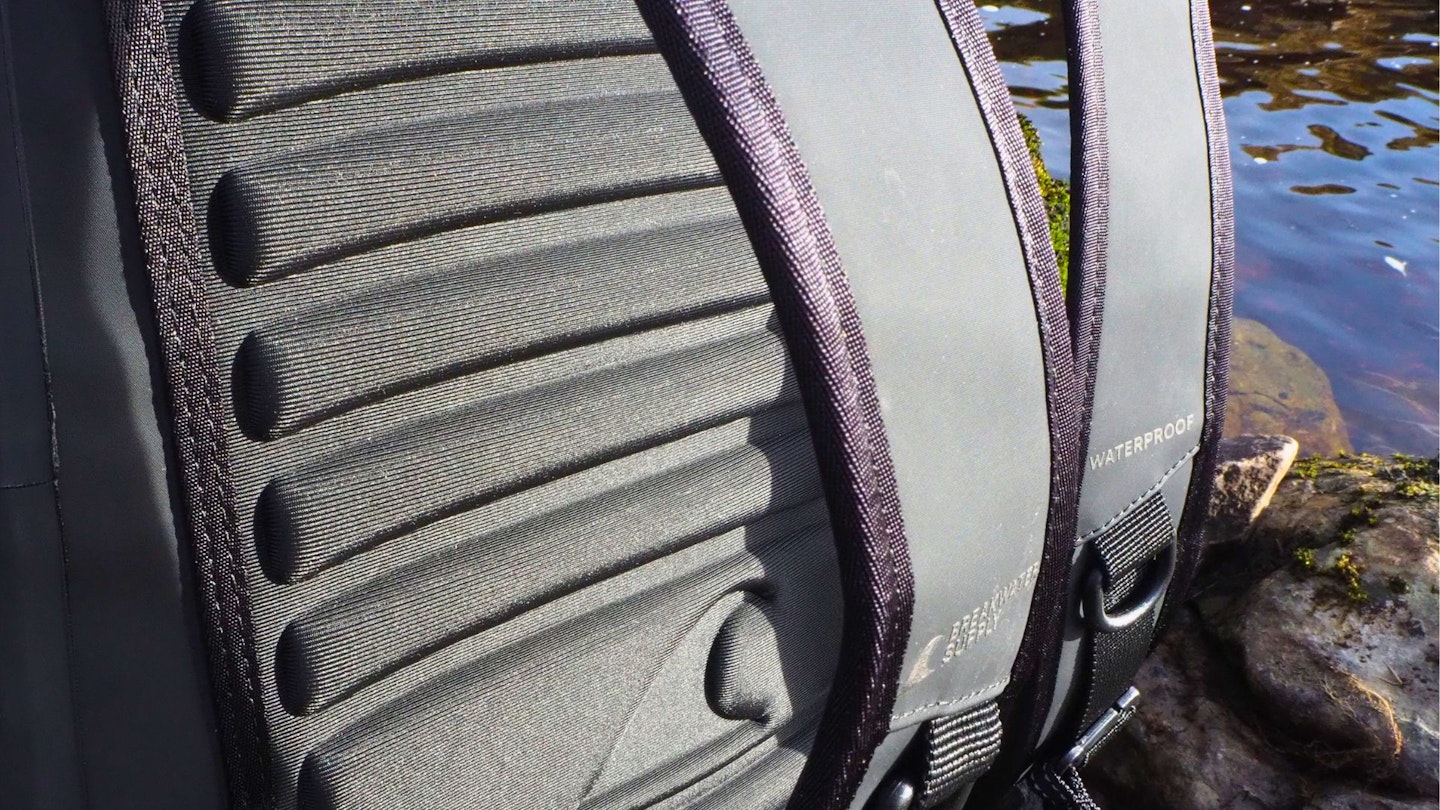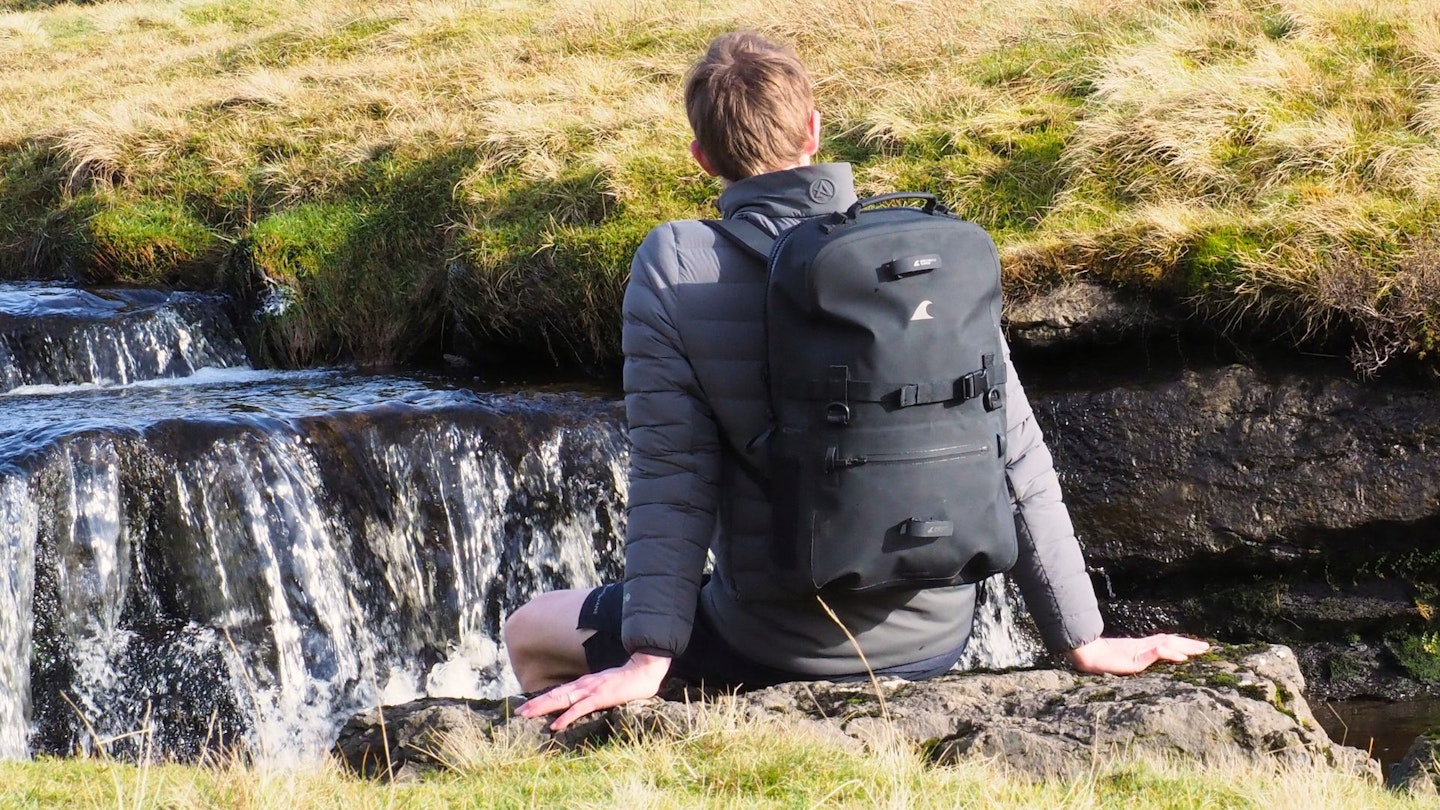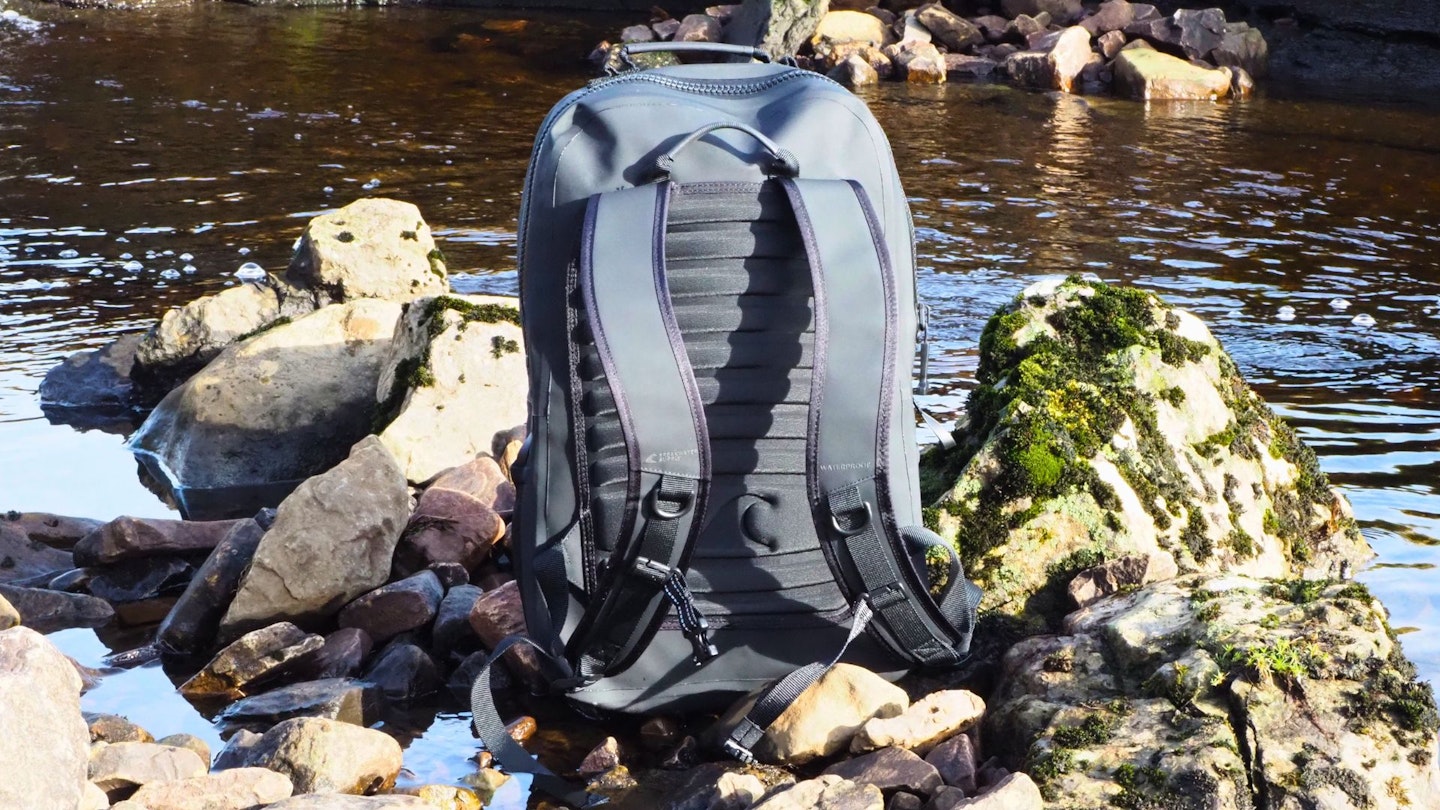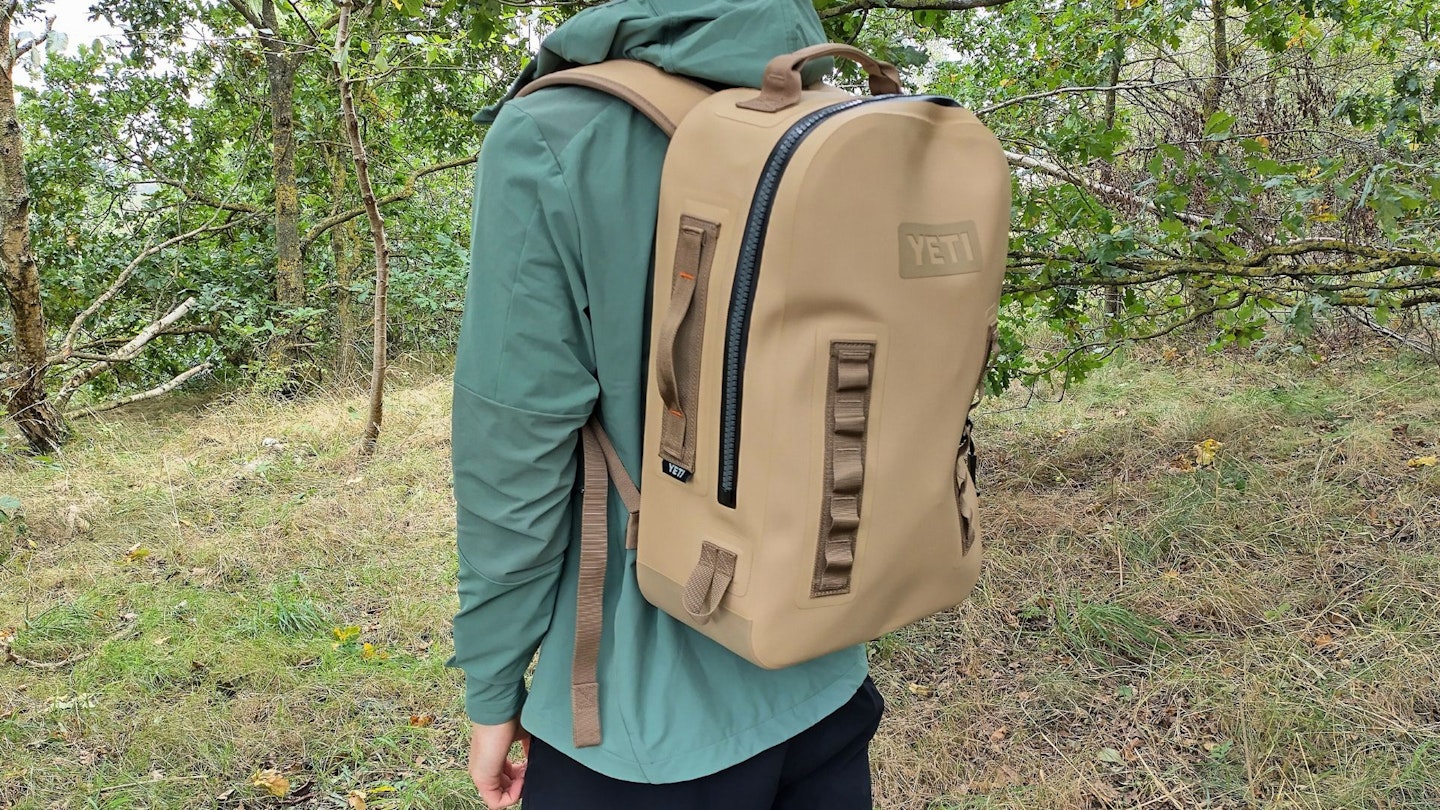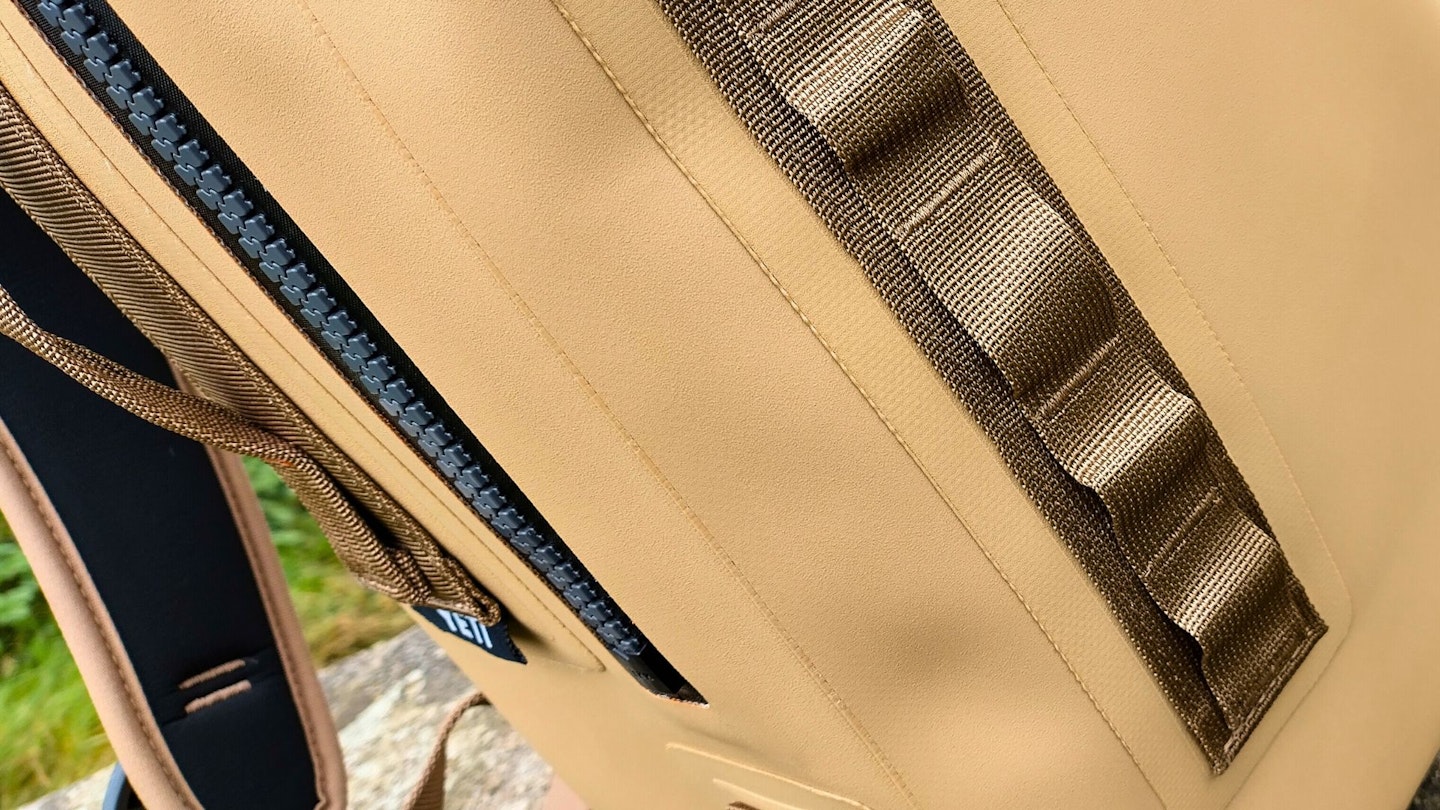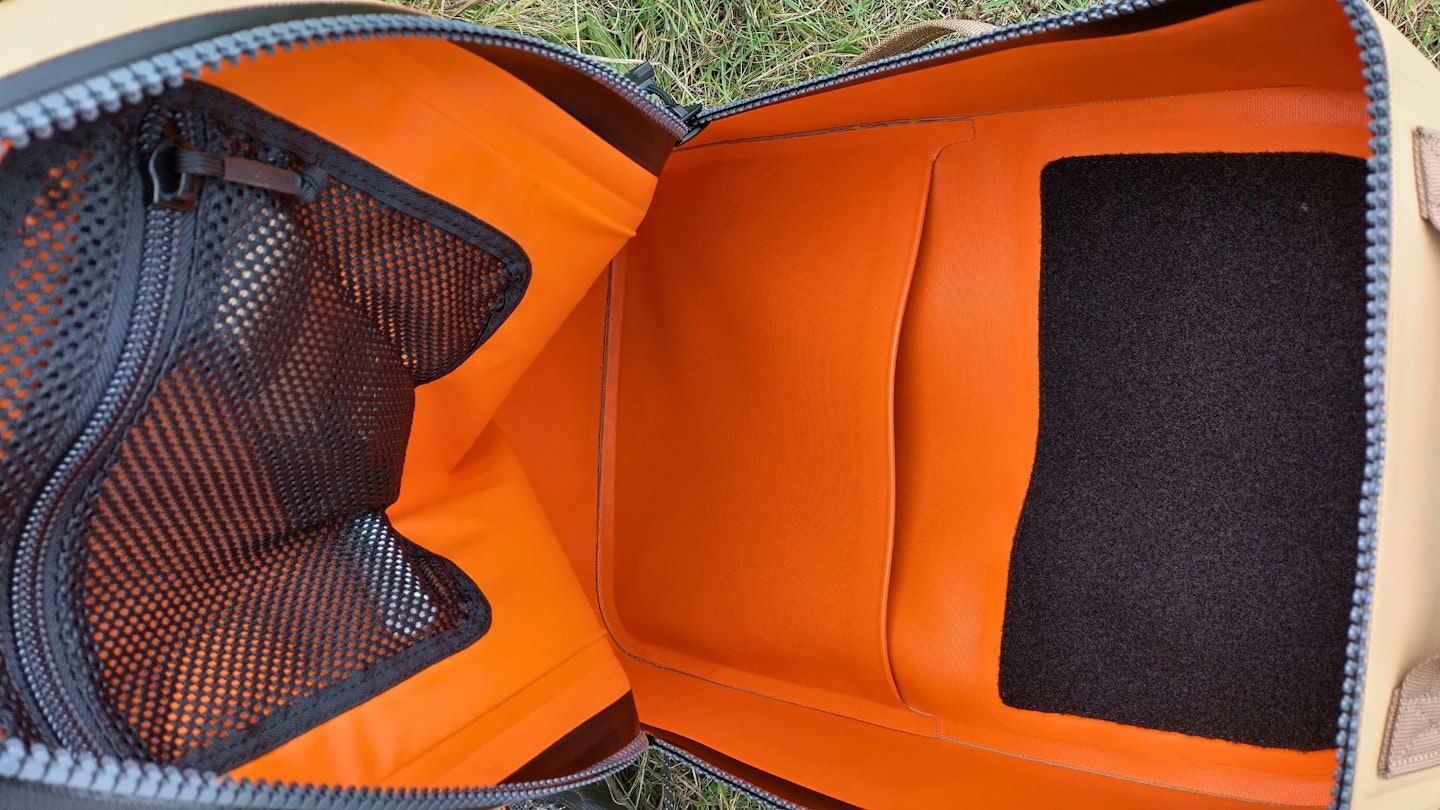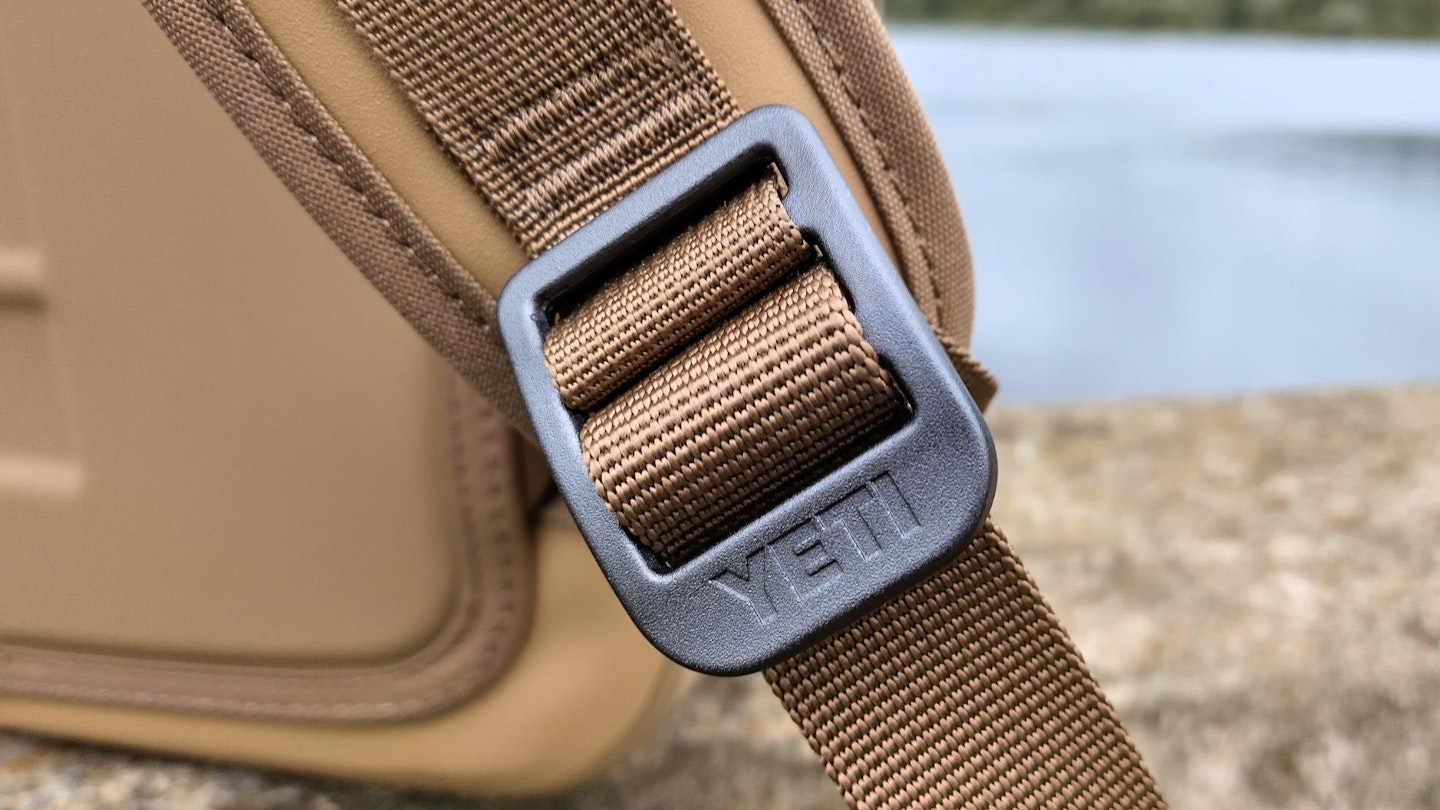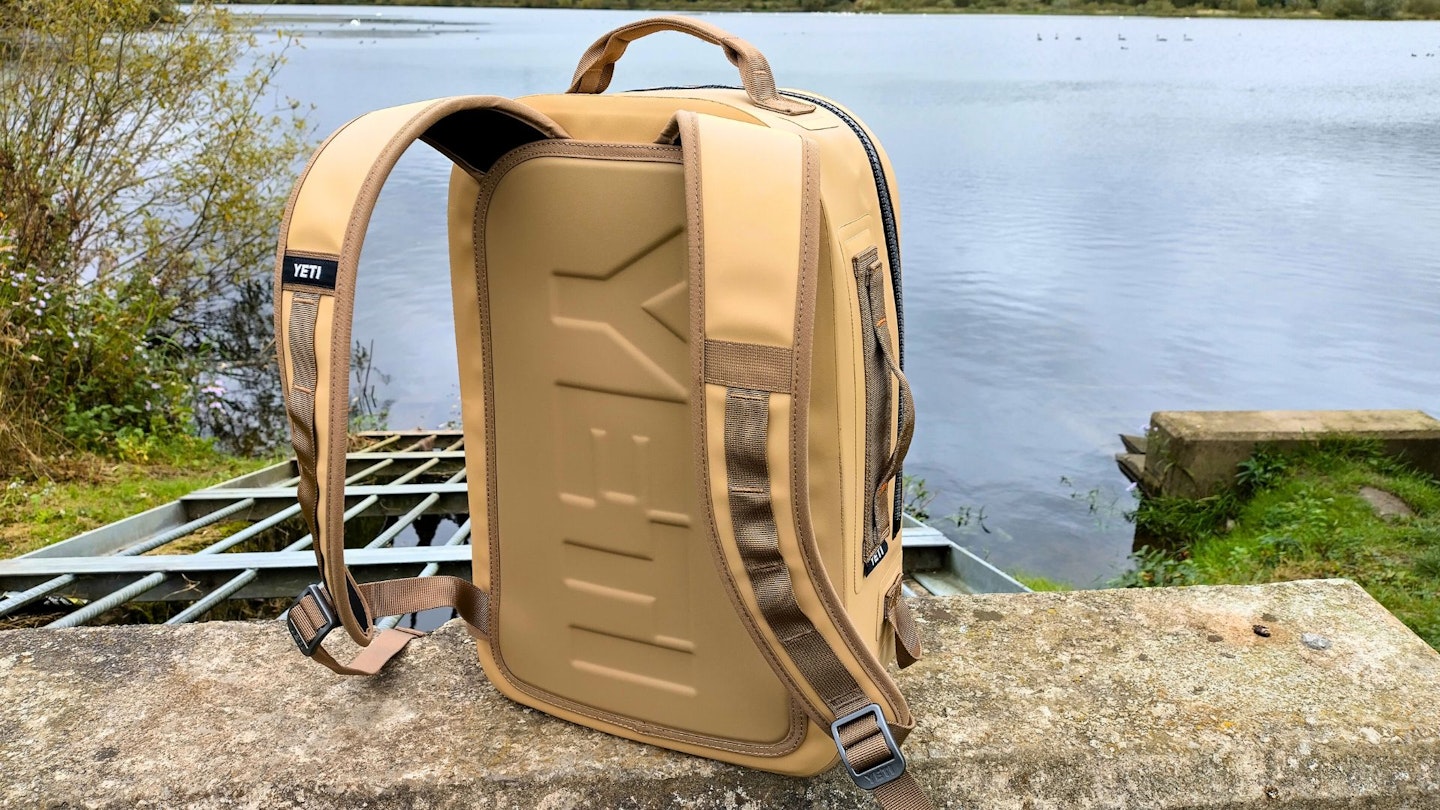Before you think about any other outdoor kit, you need a good backpack. How else are you meant to carry the rest? And, what's more, how else are you meant to keep all your stuff dry?
A waterlogged pack is anyone's nightmare. At best, ruined clothes and provisions. At worst, you could find yourself kneeling over an incomprehensible mush of a paper map and bidding a teary farewell to your laptop. That Piña Colada song is a lie: Rain is evil, and nobody likes getting caught in it.
Enter: the waterproof backpack. From hardcore hikers to everyday commuters, a reliable waterproof pack is essential for everyone this winter. Or, if you're in the UK, it's basically a year-round requirement.
What are the best waterproof backpacks of 2025?
In a stroke of luck, we called these backpacks in for testing right before Storm Babet launched her assault on the UK. We took the torrential rains as a chance to really see what the packs were made of, and we were surprised by how well they held up. Take a look at our top picks and grab yourself something stormproof.
Best in test: Osprey Transporter WP 30 – View on Amazon
Best Value: Exped Typhoon 25 – View on cotswoldoutdoor
Best lightweight backpack: Montane Trailblazer LT 28 – View on cotswoldoutdoor
Best for versatility: Sea to Summit Rapid 26 – View on Amazon
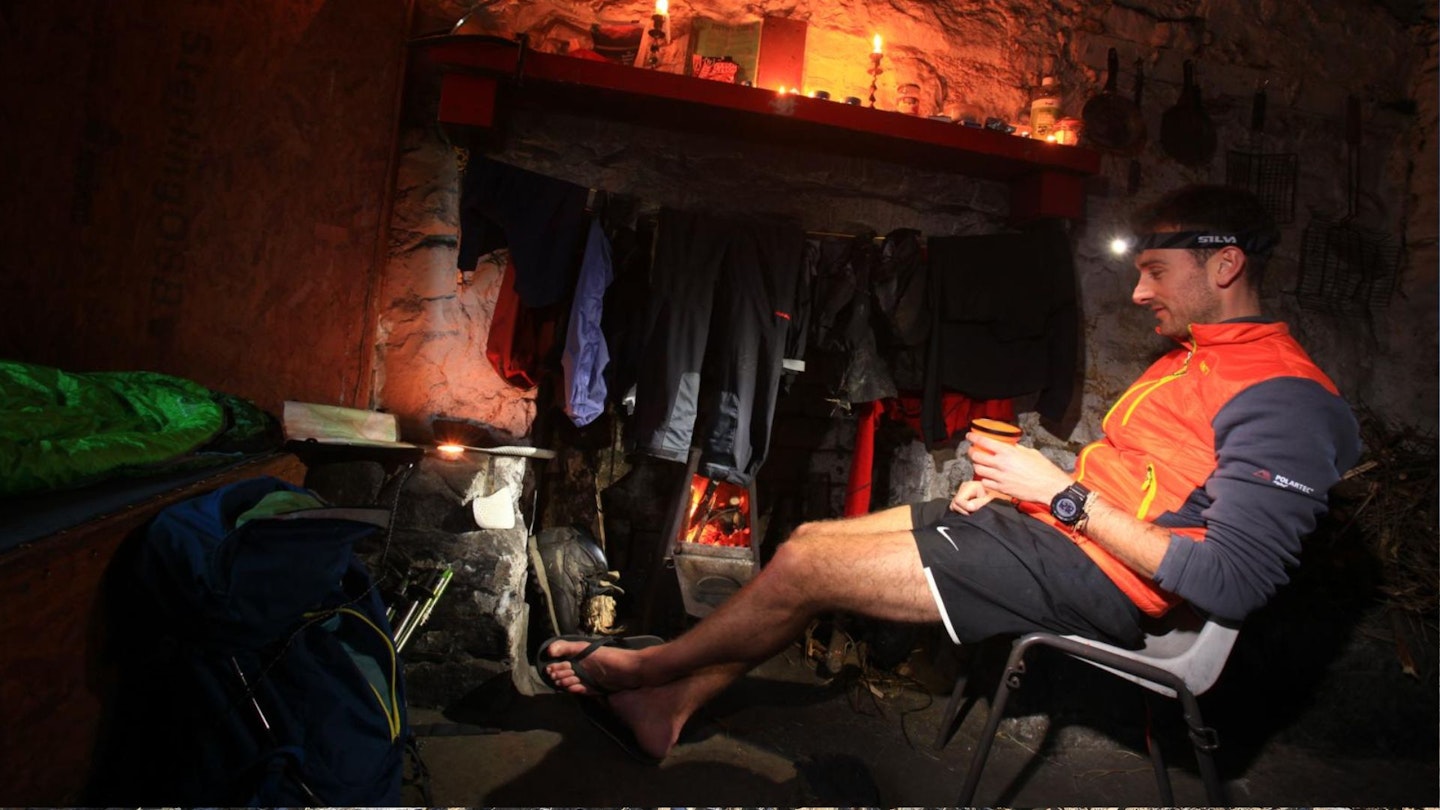
These packs were tested on hikes in the hills of North Wales in typically gloomy and drizzly October weather, and then on local trails when heavy rain and strong winds battered Britain during the autumn storms. This allowed us to test in the conditions they were designed for, and on a wide variety of terrain.
Your main tester Oli Reed is the editor of Live For The Outdoors and Trail magazine, whose main use for waterproof backpacks is on local trails in winter, or on paddleboarding and canoe trips in summer.
What we really look for in waterproof packs – as well as how good they are at repelling water, obviously – is functionality. Are they over-engineered, or are they still practical enough to use as a day-to-day pack?
CLICK HERE for more information about how we test gear at LFTO.
Best waterproof backpacks reviewed:
It's safe to say we are thoroughly impressed by the Transporter WP pack. The materials are instantly recognisable as high quality; Osprey have used bluesign approved 400D recycled nylon, which is TPU double coated to make it extra strong and durable.
That same nylon is used on the main outer walls and the base of the pack in one big piece of fabric, meaning there are no weak points for water to attack. After 12 hours of hammering from Babet, the sleeping bags we stuffed inside this bad boy were still bone dry.
The waterproof rating of IPX6 is about as high as you can go without something being designed to be fully submerged. So when you factor in the clippable roll-top closure, what you’re effectively getting here is a big waterproof sack with durable and protective outer walls that you can fully seal up.
This is one of those backpacks that somehow feels larger than its 30-litre capacity. Probably because the opening is so big and the fact that the inside is pretty much just one large sack-like compartment. But it does also have some nice pockets.
On the front of the pack, you get a large stretchy fabric sleeve that’s perfect for stashing things like wet waterproofs or gloves and hats. There’s also a small zipped pocket under that stretchy fabric on the outside, as well as a laptop sleeve inside.
And, on top of everything else, this pack is comfortable to wear, which is especially rare amongst waterproof backpacks. It comes fitted with Osprey’s renowned AirScape back panel, which is well padded with foam and covered with a webbed mesh that allows air to flow between the rear of the pack and your back.
The Osprey Transporter WP 30 is the standout waterproof backpack we’ve tested this year. It does the most important job of keeping its contents dry and protected from the elements brilliantly, but the good news doesn’t end there. It’s tough, comfortable and comes with enough impressive features to justify its high price tag. This is a fantastic bit of kit.
Read our full Osprey Transporter WP 30 waterproof backpack review
Pros
- Great waterproof performance
- Durable construction
- Good features
- Made from fully recycled materials
Cons
- Nothin' to see here
| Fabric | 400D recycled nylon, TPU double coated, bluesign approved |
| Weight | 855g |
| Volume | 30 litres |
| Other volumes | 18L, 25L |
the Exped Typhoon 25 is a great low-priced option if you’re looking for a reliable waterproof hiking backpack that doesn’t need to perform on the toughest terrain or in the worst weather.
What Exped have produced here is a lightweight, reasonably robust and stylish waterproof pack with a good roll-top closure. It's ideal for use on day trips for everything from hiking and cycling to climbing and commuting.
Exped don’t make any overly bold claims about the Typhoon’s waterproofing capabilities, but from our testing experience the performance is very solid in terms of keeping the contents of the pack dry.
There are plenty of nice little features on this pack too. We like the gear attachments, the mesh back panel, and the inner lining that you can turn inside out and pull out of the pack for quick drying.
In all, the Exped Typhoon 25 is a good choice if you’re looking for excellent value and reliability in an everyday waterproof backpack. The waterproofing is good, it has some really nice and useful features, and it looks great. Plus, you can choose from four colours (dark lava, coral, lichen and bluebird).
Read our full Exped Typhoon 25 waterproof backpack review
Pros
- Superb value
- Reliable waterproofing
- Clever internal liner
- Cool design
Cons
- Comfort decreases when full
| Outer fabric | PU coated 210D recycled ripstop nylon (1,500mm hydrostatic head) |
| Lining | PU coated 150D recycled polyester (3,000 hydrostatic head) |
| Weight | 250g |
| Capacity | 25 litres |
| Other volumes | 15L |
If you close your eyes and visualise a heavy-duty, technical, waterproof pack, it probably looks a lot like the Ortlieb Atrack 35. It’s the kind of backpack you’d expect to see Bear Grylls emerging from the Amazon undergrowth wearing.
Immediate highlights include its wear and tear-resistant fabric, an adjustable back system to suit your height, padded shoulder straps and back panel, and a heavy-duty and large zip opening that runs down the whole length of the back of the pack. And, the star of the show, an excellent IP67 waterproof rating.
That rating, in layman’s terms, means it’s hard to puncture with sharp objects and can even cope with short periods of immersion in water without letting anything seep through the fabric.
The comfort level of this pack is what sets it apart from the Osprey Transporter and the Sea to Summit Rapid, which have a roughly equal waterproof rating. The Atrack is excellently padded, and feels very much like a normal hiking pack (once everything is adjusted and tightened).
Read our full Ortlieb Atrack 35 waterproof backpack review
Pros
- Excellent waterproofing
- Feels indestructible
- Very comfortable
- Loads of cool features
Cons
- Quite heavy and bulky
- Not convinced by the rear zipped opening
| Fabric | PU-coated nylon fabric, which is IP67 rated and PVC, PFC, and BPA-free |
| Weight | 1470g |
| Volume | 35 litres |
| Other volumes | 25L, 45L |
The first thing we thought when we picked up the Montane Trailblazer 28 was ‘wow, this is light’. So light, in fact, that on first impressions we didn’t think it could possibly match up to its competitors on the waterproof backpack scene.
Luckily, our scepticism was quickly put to rest. What Montane have created here is a hiking daypack that ticks a huge number boxes for lightweight devotees. The side-clipping roll-top closure is clever, the waterproofing seems good, the comfort is impressive, and the capacity of this 28-litre version is plenty big enough for long days on the trail.
When fully loaded, the comfort levels of the Montane Trailblazer 28 are good. The hipbelt harness is deep and lightly padded with a mesh backing, so it hugs your body and absorbs some of the weight you’re carrying.
That same mesh from the harness extends up into the back panel and shoulder straps, which are both also lightly padded, to create a bit of airflow and breathability when it’s flush against your body.
The roll-top closure works well – the advice from Montane is to roll it over three times before clipping and tensioning down the side of the pack. There’s also a hydration bladder sleeve sandwiched between the Trailblazer’s main chamber and the back panel,
In all, this pack is ideal for any fastpacker or even trail runner looking to carry their essentials in unpredictable weather. It’s loaded with impressive technology and available in a huge range of sizes to suit every type of trip.
Read our full Montane Trailblazer LT 28 waterproof backpack review
Pros
- Lightweight
- Comfortable
- Reliably waterproof
- Innovative features
Cons
- Flimsy feel
- Sags when not full
| Fabric | Raptor Fly Lite 40 denier siliconised ripstop nylon, with TPU coating |
| Weight | 390g |
| Volume | 28 litres |
| Other volumes | <meta charset="utf-8">8L, women's 16L, 18L, 20L, women's 24L, 25L, 30L, 44L |
This is the second generation of the Gourdon we’ve tested, and we’re pleased to report the first one is still going strong after six years of weekly use. There’s nothing overly groundbreaking to report in terms of features – this is basically a big no-frills waterproof sack with a roll-top closure that seals it up effectively from the elements.
The outer material is quite lightweight and thin, but in our testing experience it does the all-important job of keeping water out – in the kind of conditions you’d expect on a standard British hike or hillwalk. We’ve used a slightly older version of the Gourdon (the Gourdon 30L) for more than six years and it’s never let us down.
In terms of comfort, we’d probably describe the Gourdon as more of a waterproof dry bag with shoulder straps than a full-on waterproof rucksack. that said, there is some padding on the shoulder straps and a thin protective layer on the back panel.
The hipbelt is just a thin adjustable strap that doesn’t offer a lot of support, but when you tighten everything it’s well-fitting and comfort isn’t an issue.
In all, the Gourdon 25 won’t win many awards for futuristic innovation, but if all you’re looking for is a well-priced waterproof sack that will keep your kit dry on wet hikes, then you can’t go far wrong with this.
Read our full Alpkit Gourdon 25L waterproof backpack review
Pros
- Superb value
- Roomy and spacious
- Lightweight
- Good for multiple activities
Cons
- Basic set of features
| Fabric | 100% recycled rPET nylon, with PU backer and PFC-free DWR coating |
| Weight | 485g |
| Volume | 25 litres |
| Other volumes | 20L, 30L |
There's a certain beauty in the simplicity of this pack. Sea to Summit have always excelled at making dry bags and stuff sacks, and they've clearly brought that expertise to the Rapid 26L. If you a picture a big dry bag with bombproof fabric, adjustable straps, a padded back panel, and a simple roll-top closure, you’ll come pretty close to what we've got here.
The Rapid 26L Dry Pack is constructed from 420D laminated nylon fabric with a hydrostatic head of 10,000mm. Sea to Summit describes this as waterproof and abrasion resistant, and the fact that 420D nylon is considered good enough for everything from gazebos and three-season tents to paddleboarding equipment tells you a lot about the quality of the materials used here.
The rolltop closure is excellent too. It rolls over really easily, then clips at the sides rather than across the top so you can easily access the carry handle. This also makes the closure feel very secure, adding a further barrier to any potential water ingress.
As with most stripped-back waterproof backpacks, you can’t expect the same comfort levels as you would from a fully-featured hiking rucksack. But, the Rapid 26L isn't uncomfortable at all. You get a good amount of padding in the back panel and shoulder straps, and he pack also feels very stable when it's full. There's no sagging in specific areas, so the weight distribution is nice and even.
When it comes to a final verdict, the Sea to Summit Rapid 26L Dry Pack is a high-spec waterproof backpack that outperforms many of its competitors. It’s certainly not a cheap rucksack, but when you consider the brand it’s made by and the materials it’s constructed from, the price isn’t outrageous either. Durability is our big highlight.
Read our full Sea to Summit Rapid 26L Dry Pack review
Pros
- Excellent waterproofing
- Tough and durable materials
- Great rolltop closure
- Roomy interior
Cons
- Back panel is quite basic
| Fabric | 420D waterproof nylon with bright white TPU lining |
| Weight | 750g |
| Volume | 26 litres |
| Other volumes | N/A |
The Fogland Waterproof Backpack takes a different approach to many of the other backpacks here.
Where most of them are quite lightweight and almost like a glorified dry bag, the Fogland is chunky, stiff, and utterly watertight. When we say watertight we mean it. Throw the Fogland in a lake, submerge it, it'll keep your contents dry.
It does this by using a TPU-coated 420D nylon material and drysuit-quality zippers to ensure to no water or dust gets in.
Despite the hardcore waterproofing, we found this is quite a user-friendly backpack that's suitable for everyday use, in addition to water sports and outdoor adventures. That said, some of the other options here are better for hiking.
We like that it's a tough backpack too, with that main fabric being highly abrasion and puncture resistant.
Read our full Breakwater Supply Fogland Waterproof Backpack review
Pros
- Truly waterproof and submersible
- Useful as a general daypack
- Tough
- Extra pockets and gear attachment points
- Range of volumes and colours
Cons
- Water bottle pockets only accommodate small bottles
- Not a technical hiking pack
| Fabric | TPU-coated 420D nylon |
| Weight | 1.1kg |
| Volume | 25L |
| Other volumes | 15L, 20L |
YETI’s Panga backpack eventuated when the brand wanted to make a backpack version of its Panga Duffel. So, YETI simply took the TPU-laminated nylon material it called ThickSkin Shell and plied it into a backpack shape.
Like the duffel, the Panga backpack retains a sturdy EVA-moulded base, metal hardware, and crucially, a totally watertight design using a chunky HydroLock zip. More than water resistant, YETI says the Panga backpack is submersible.
Like the Breakwater Supply Fogland Waterproof Backpack, we can’t fault the Panga backpack’s waterproofing. With the zip closed properly, the inside of the bag is airtight and no moisture gets in. Ever. We were impressed with how sturdy the Panga backpack is too. Everything feels like it’s made to outlast the person wearing it and if cared for properly, it certainly feels like something you only buy once.
The flip side of this sturdiness, however, is that it’s a heavy backpack for its size. We were sceptical about the shoulder straps at first, but they ended up pleasantly surprising us with decent comfort levels. But, that said, this is by no means a hiking backpack.
The longest outing we wore the Panga backpack on was 10 miles. Loaded up with about eight kilograms of gear, the shoulder straps were perfectly comfortable, but the flat, non-ventilated back panel is very capable of making your back sweaty. There are removable chest and waist straps, but they didn't make much of a difference for us.
Overall, with good storage solutions on the interior and truly faultless waterproofing, this is a superb pack that will last forever. But, it's definitely not for hiking, and we're still having some trouble getting over the steep price.
Read our full YETI Panga 28L Waterproof Backpack review
Pros
- Impermeable watertightness
- Tough and durable
- Suitable for short walks or commuting
- Looks like a regular backpack
Cons
- Not suitable for hiking
- No external pockets/stash pockets
| Weight | 1.8kg |
| Fabric | ThickSkin Shell (high density nylon with TPU lamination), EVA base |
| Sizes | One |
| Other volumes | 28L only |
What to look for in a waterproof backpack
Your four main considerations when choosing a waterproof backpack should be the materials used, the closure system, comfort, and capacity.
Materials
The majority of waterproof packs will use a blend of polyester and nylon as a base material, and then treat it with a DWR (durable water repellent) finish. You'll also may want to look for a TPU lining.
You'll likely see fabrics rated by a number and a 'D', such as the Sea to Summit packing having a 420D Nylon construction. This is a unit of measurement which stands for 'denier', it tells you how thick the individual fibres are in a given fabric. Naturally, a high denier count fabric will be tougher and more weather resistant than a lower count.
Another common rating is 'HH' or hydrostatic head. This directly measures how waterproof something is. The number indicates how many millimetres tall a column of water standing on a fabric would have to be before it managed to penetrate and soak the fibres. So, the 1,500mm hydrostatic head of the Exped Typhoon is pretty darn good.
Closure
The closure system is also important to consider. A rolltop is the simplest and most reliable method for keeping your contents dry. Other bags might opt for placing the zipper in an unconventional spot, like the Ortlieb Atrack's back panel zip. If a bag does use a zipper, be sure that it seals watertight.
Comfort
As for comfort, look for features like a padded back system, a body-hugging hipbelt, an adjustable chest strap, and shoulder straps that look ergonomic and well-cushioned. Sometimes, these features are sacrificed in the name of durability or water protection – a soft back panel isn't much totally fun soaked through.
Capacity
Naturally, choosing the volume of your pack is going to be largely down to the kinds of activities you're planning on doing with it. Bear in mind that longer and more technical outings will require a larger capacity to accommodate for the extra gear and supplies you'll need. Also remember that a large capacity will mean more weight on yuour back, so comfort gains a bit of priority on bigger backpacks.
About the author

Oli Reed is the Group Editor of Live For The Outdoors and Trail magazine. He's been hiking, exploring and reviewing outdoor kit for decades, so it's fair to say he knows what makes a good piece of gear.

